Write an essay in French
Beyond the fact that writing an essay in French can be a good practice to improve your writing, you may also be asked to write one during your schooling. So, it is important to study the topic of French essay writing and get some useful tips..
» Tips and tricks for your French essay » The structure of a French essay » Sample French Essay

Tips and tricks for your French essay
When writing a French essay for school, you should always use a structured approach and good French skills to present your arguments in a focused way. Beyond French skills, there are also important formal requirements for a successful French essay. We will come back to this in detail later. First, you will find some useful tips and tricks that will help you write more compelling and better French essays in the future.
- Have a clear thesis and structure
- Do sufficient research and use reliable sources
- Use examples and arguments to support your thesis
- Avoid plagiarism and cite correctly
- Always check structure, grammar and spelling
When you write your essay at school or university, you need to make sure that the general structure of your essay, the presentation of the arguments and, above all, your French language skills play a role in the mark you will get. This is why you should definitely take a closer look at the structure of an essay as well as the most important grammar rules and formulations for French essays.
The structure of a French essay
In an essay, you deal at length and in detail with a usually given topic. When you write an essay in French, you must follow a certain structure. Below we show you what this structure looks like and give you some tips for writing the most important parts of your essay.

The Introduction
The introduction prepares the main body of your essay. You think of a meaningful title for your essay, you describe your thesis or your question, you give general information on the subject and you prepare your argument by giving an overview of your most important arguments.
Below are examples and phrases that you can use to write the introduction to your essay in French.
The title should be meaningful, concise and reflect the content of the essay.
Introductory paragraph
The first paragraph of your French essay should briefly introduce the topic and engage the reader. Here are some examples to help you write your essay:
Proposal or question
The central proposition or question of your French essay should be a clear and concise definition of the purpose of the essay. Use these examples to get a clearer idea of how to write theses in French:
Overview of Arguments and Structure
At the end of your introduction, describe the structure of the main part of your essay (your outline) and outline your argument. Here are some French expressions that will certainly help you write your essay:
The body of your essay

The main part of your French essay deals with the given topic in detail. The subject is studied from all angles. The main body of your essay follows a thread of argument and discusses in detail the main arguments of your thesis previously made in the introduction.
In the body of the text, you should discuss the subject of your essay in clear and concise language. To achieve this, we give you some wording aids as well as vocabulary and phrases that you can use to write your essay in French.
Formulation tools:
French vocabulary for essays.
In the conclusion of your French essay, you address the thesis of your essay, summarize the main points of your discussion in the main body, and draw a conclusion. On the basis of the arguments and the resulting conclusions, you formulate in the conclusion of your dissertation final thoughts and suggestions for the future. It is important that you do not add new information or new arguments. This should only be done in the body of your text.
Here are some wording guides to help you write your essay in French:
Sample French Essay
Les avantages des voyages linguistiques
Malgré les difficultés potentielles, les voyages linguistiques offrent aux apprenants une occasion unique d'améliorer leurs compétences linguistiques et de découvrir de nouvelles cultures, ce qui en fait un investissement précieux pour leur développement personnel et académique.
Les séjours linguistiques sont des voyages organisés dans le but d'améliorer les compétences linguistiques des participants. Ces voyages peuvent se dérouler dans le pays ou à l'étranger et durer d'un week-end à plusieurs semaines. L'un des principaux avantages des séjours linguistiques est l'immersion. Entourés de locuteurs natifs, les apprenants sont contraints de pratiquer et d'améliorer leurs compétences linguistiques dans des situations réelles.Il s'agit d'une méthode d'apprentissage beaucoup plus efficace que le simple fait d'étudier une langue dans une salle de classe.
Un autre avantage des séjours linguistiques est l'expérience culturelle. Voyager dans un nouveau pays permet aux apprenants de découvrir de nouvelles coutumes, traditions et modes de vie, et de se familiariser avec l'histoire et la culture du pays. Cela enrichit non seulement l'expérience d'apprentissage de la langue, mais contribue également à élargir les horizons et à accroître la sensibilisation culturelle.
Cependant, les séjours linguistiques peuvent également présenter des inconvénients. Par exemple, le coût du voyage et de l'hébergement peut être élevé, en particulier pour les séjours de longue durée. En outre, les apprenants peuvent être confrontés à la barrière de la langue ou à un choc culturel, ce qui peut être difficile à surmonter. Le coût et les difficultés potentielles des séjours linguistiques peuvent sembler décourageants, mais ils offrent des avantages précieux en termes d'épanouissement personnel et scolaire.
Les compétences linguistiques et les connaissances culturelles acquises peuvent déboucher sur de nouvelles opportunités d'emploi et améliorer la communication dans un cadre professionnel. Les bourses et les aides financières rendent les séjours linguistiques plus accessibles. Le fait d'être confronté à une barrière linguistique ou à un choc culturel peut également être l'occasion d'un développement personnel. Ces avantages l'emportent largement sur les inconvénients et font des séjours linguistiques un investissement qui en vaut la peine.
En conclusion, malgré les difficultés potentielles, les séjours linguistiques offrent aux apprenants une occasion unique d'améliorer leurs compétences linguistiques et de découvrir de nouvelles cultures, ce qui en fait un investissement précieux pour le développement personnel et académique. Qu'il s'agisse d'un débutant ou d'un apprenant avancé, un voyage linguistique est une expérience à ne pas manquer.
Improve your writing style in French
Learn French with us. We will help you improve your writing skills.

Improve your French with Sprachcaffe

A Year abroad for high school students
Spend a unique school year abroad

Online French courses
Learn French from the comfort of your own home with an online course

Learn French on a language trip
Learn French in a French-speaking country
How to Write an Excellent French Essay (Resources Included)
Tips to write an excellent french essay.
Writing essays is challenging enough, but when you are asked to write a French essay, you are not only being asked to write in a foreign language, but to follow the conventions of another linguistic and literary tradition. Like essay-writing in any language, the essential part of writing a French essay is to convey your thoughts and observations on a certain topic in a clear and concise manner. French essays do come out of a certain tradition that is part of the training of all students who attend school in France – or at least secondary school – and when you are a French essay, it is important to be aware of this tradition.

The French philosopher Michel de Montaigne is credited with popularizing the essay form as a literary genre. His work, Essais, first published in 1580, and undergoing several subsequent publications before his death in 1592, covers a wide breadth of topics, ranging from “amitié” to “philosopher c’est apprendre à mourir”, and includes many literary references, as well as personal anecdotes. The name for this genre, essai, is the nominal form of the verb essayer, “to attempt”. We have an archaic English verb essay, meaning the same thing. The limerick that includes the phrase, “... when she essayed to drink lemonade ...” indicates an attempt to drink a beverage and has nothing to do with writing about it. But the writing form does illustrate an attempt to describe a topic in depth with the purpose of developing new insights on a particular text or corpus.
French instructors are very specific about what they would like when they ask for an essay, meaning that they will probably specify whether they would like an explication de texte, commentaire composé, or dissertation. That last essay form should not be confused with the document completed for a doctorate in anglophone countries – this is called a thèse in French, by the way. There are different formats for each of these types of essay, and different objectives for each written form.
Types of Essay
1. l’explication de texte.
An explication de texte is a type of essay for which you complete a close reading. It is usually written about a poem or a short passage within a larger work. This close reading will elucidate different themes and stylistic devices within the text. When you are completing an explication de texte, make sure to follow the structure of the text as you complete a close examination of its form and content. The format for an explication de texte consists of:
i. An introduction, in which you situate the text within its genre and historical context. This is where you can point out to your readers the general themes of the text, its form, the trajectory of your reading, and your approach to the text.
ii. The body, in which you develop your ideas, following the structure of the text. Make sure you know all of the meanings of the words used, especially the key terms that point to the themes addressed by the author. It is a good idea to look words up in the dictionary to find out any second, third, and fourth meanings that could add to the themes and forms you describe. Like a student taking an oral examination based on this type of essay writing, you will be expected to have solid knowledge of the vocabulary and grammatical structures that appear in the text. Often the significance of the language used unfolds as you explain the different components of theme, style, and composition.
iii. A conclusion, in which you sum up the general meaning of the text and the significance of the figures and forms being used. You should also give the implications of what is being addressed, and the relevance of these within a larger literary, historical, or philosophical context.
NB: If you are writing about a poem, include observations on the verse, rhyme schemes, and meter. It is a good idea to refer to a reference work on versification. If you are writing about a philosophical work, be familiar with philosophical references and definitions of concepts.
Caveat: Refrain from paraphrasing. Instead show through careful analysis of theme, style, and composition the way in which the main ideas of the text are conveyed.
2. Le commentaire composé
A commentaire composé is a methodologically codified commentary that focuses on themes in a particular text. This type of essay develops different areas of reflection through analytical argument. Such argumentation should clarify the reading that you are approaching by presenting components of the text from different perspectives. In contrast to the explication de texte, it is organized thematically rather than following the structure of the text to which it refers. The format for a commentaire composé consists of:
i. An introduction, in which you present the question you have come up with, often in relation to a prompt commenting on a thematic or stylistic aspect of the text, such as “Montrez en quoi ce texte évoque l’amour courtois” or “Qu’apporte l’absence de la ponctuation dans ce texte ?” In this section, you will be expected to delineate your approach to the text and illustrate the trajectory of your ideas so that your readers will have a clear idea of the direction these ideas will take.
ii. A tripartite body, in which you explore the question you have come up with, citing specific examples in the text that are especially pertinent to the areas of reflection you wish to explore. These citations should be explained and connected to the broad themes of your commentary, all the while providing details that draw the readers’ attention to your areas of inquiry. These different areas of inquiry may initially seem disparate or even contradictory, but eventually come together to form a harmonious reading that addresses different aspects of the text. The more obvious characteristics of the text should illuminate its subtler aspects, which allows for acute insight into the question that you are in the process of exploring.
iii. A conclusion, in which you evaluate your reading and synthesize its different areas of inquiry. This is where you may include your own opinions, but make sure that the preceding sections of your commentaire remain analytical and supported by evidence that you find in the text.
NB: Looking at verb tenses, figures of speech, and other aspects that contribute to the form of the text will help situate your reader, as will commenting on the register of language, whether this language is ornate, plain, reflects a style soutenu, or less formal patterns of speech.
Caveat: Quotations do not replace observations or comments on the text. Explain your quotations and situate them well within your own text.
3. La dissertation
The dissertation is a personal, organized, and methodical reflection on a precise question that refers to a corpus of writing. Referring to this corpus, you may be asked questions along the lines of “Que pensez-vous de l’équivalence entre l’amour et la chanson exprimée dans ces textes ?” or “Est-ce que la sagesse et la folie ont les mêmes sources?” This type of essay allows for an exploration of a question through knowledge of a corpus as well as through an individual’s cultural knowledge. The format for a dissertation consists of:
i. An introduction, in which you present the topic addressed, the significance of your argument, and the trajectory of your ideas.
ii. The body which, like a commentaire composé, consists of a tripartite development of your argument. This can follow any one of the following structures: a dialectical schema, organized into thèse, antithèse, and synthèse – an argument, its counter-argument, and its rebuttal; an analytical schema, consisting of the description of a situation, an analysis of its causes, and commentary on its consequences; a thematic schema, which consists of a reflection on a topic which you proceed to examine from different angles in an orderly fashion.
iii. A conclusion, in which you address the different ways in which you have approached the question at hand and how this deepens your insights, while placing the question within a broader context that shows room for expansion. The conclusion can open up the topic addressed to show its placement within a literary movement, or in opposition to another literary movement that follows it, for example.
NB: Approach the question at hand with as few preconceptions as possible. If you are writing on a quotation, gather all of your knowledge about its author, the work in which it appears, and the body of literature with which it is associated.
Caveat: Even for a personal reflection, such as a dissertation, avoid using the first person pronoun je. Nous or on are preferable. It is advisable not to switch from one to the other, though.
For each of these essay forms, it is a good idea to make an outline to which you can refer as you write. As your writing progresses, things may shift a bit, but having a structure on which you can rely as you gather your various ideas and information into a coherent argument provides solid foundation for a clear and well-developed essay. This also facilitates smooth transitions from one section of your essay to the next.
During your reading, you may encounter a problem, a contradiction, or a surprising turn of phrase that is difficult to figure out. Such moments in a text give you the opportunity to delve into the unique characteristics of the text or corpus to which you are referring, to propose different solutions to the problems you encounter, and to describe their significance within a larger literary, philosophical, and historical context. Essay writing allows you to become more familiar with French works, with their cultural significance, and with the French language. You can refer to the following resources to guide you in this endeavor:
Auffret, Serge et Hélène. Le commentaire composé. Paris: Hachette, 1991. Dufau, Micheline et Ellen D'Alelio. Découverte du poème: Introduction à l'explication de textes. New York: Harcourt, Brace & World, 1967. Grammont, Maurice. Petit traité de versification française. Paris: A. Colin, 2015. Huisman, Denis et L. R. Plazolles. L’art de la dissertation littéraire : du baccalauréat au C.A.P.E.S. Paris : Société d’édition d’enseignement supérieur, 1965.
The French newspaper Le Monde also has good articles on these essay forms that prepare French students for the baccalauréat exam: CLICK HERE
This is also a website with thorough information on essay writing techniques that prepare students for the baccalauréat exam: CLICK HERE
In addition, the University of Adelaide has tips for general essay writing in French: CLICK HERE
🇫🇷 Looking for More French Resources?
Train with Glossika and get comfortable talking in French. The more you listen and speak, the better and more fluent you will be.
Glossika uses syntax to help you internalize grammatical structures and you can build up your French vocabulary along with way. You'll also learn to communicate in real-life situations, and achieve fluency by training your speaking and listening!
Sign up on Glossika and try Glossika for free:

You May Also Like:
- 10 Great Tips to Prepare to Study in France
- How to Maintain French and Continue Learning by Yourself
- Differences Between Spoken French and Written French
Subscribe to The Glossika Blog
Get the latest posts delivered right to your inbox

Stay up to date! Get all the latest & greatest posts delivered straight to your inbox

Published on October 6th, 2023 | by Adrian Lomezzo
How to Write an Essay in French Without Giving Yourself Away as a Foreigner

Image source: https://www.pexels.com/photo/close-up-shot-of-a-quote-on-a-paper-5425603/
Bienvenue! Do you dream of unleashing your inner French literary genius, but worry that your writing might inadvertently reveal your foreign roots? Fret not, mes amis, as we have the ultimate guide to help you master the art of essay writing en Français!
Within these pages, we’ll navigate the intricate waters of linguistic nuances, cultural subtleties, and grammatical finesse, allowing you to exude the aura of a native French speaker effortlessly. Many students like you have embarked on this journey, seeking academic assistance from platforms like https://paperwritten.com/ to conquer their writing pursuits.
From crafting a compelling introduction to fashioning impeccable conclusions, we’ll unveil the secrets that will leave your professors applauding your newfound linguistic prowess. So, bid adieu to those awkward linguistic giveaways and embrace the sheer elegance of French expression – all while keeping your foreign identity beautifully concealed! Let’s embark on this adventure together and unlock the true essence of writing like a native French virtuoso.

1. Mastering French Grammar and Vocabulary: Building a Strong Foundation
To create a compelling French essay, it’s essential to lay a solid groundwork. Ensure that your French grammar is accurate and that you possess a rich vocabulary. Avoid relying on online translators, as they may yield awkward or incorrect sentences. Instead, embrace reputable dictionaries and language resources to enhance your language skills effectively.
2. Mimic Sentence Structures: The Art of Authentic Expression
To truly immerse yourself in the French language, observe and mimic the sentence structures used by native speakers. Analyzing essays written by experienced writers can prove invaluable in grasping the authentic style required to compose a captivating essay.
3. Use Transition Words: Crafting a Smooth Flow of Ideas
In French essays, the use of transition words and phrases plays a pivotal role in connecting ideas seamlessly. Incorporate expressions like “de plus,” “en outre,” “en conclusion,” “tout d’abord,” and “par conséquent” to add coherence and elegance to your writing.
4. Embrace French Idioms and Expressions: Unveiling Cultural Fluency
Demonstrate a deeper understanding of the French language and culture by incorporating idioms and expressions where appropriate. However, remember to use them sparingly to avoid overwhelming your essay.
5. Pay Attention to Formality: Striking the Right Tone
Tailor the formality of your writing to suit the context of your essay. Whether you are crafting an academic piece or a more personal creation, be mindful of your choice of vocabulary and sentence structures to match the required tone.
6. Research Cultural References: The Power of In-depth Knowledge
If your essay touches upon French culture, history, or literature, extensive research is key. Delve into your subjects to avoid mistakes and showcase your genuine interest in the matter at hand.
7. Avoid Direct Translations: Let French Be French
To avoid awkward phrasing, strive to think in French rather than translating directly from your native language. This will lead to a more natural and eloquent essay.
8. Practice Writing Regularly: The Path to Proficiency
Mastering the art of French writing requires regular practice. Embrace writing in French frequently to grow more comfortable with the language and refine your unique writing style.
9. Read French Literature: A Gateway to Inspiration
Explore the world of French literature to expose yourself to diverse writing styles. This practice will deepen your understanding of the language and immerse you further in French culture and history.
10. Connect with French Culture: Bridges of Cultural Resonance
Incorporate cultural references that resonate with French readers, such as art, cuisine, festivals, historical figures, or social customs. Authenticity is key, so avoid relying on stereotypes.

11. Use a French Thesaurus: Expanding Your Linguistic Palette
Discovering new contextually appropriate words can elevate your writing. Embrace a French thesaurus to find synonyms that may not be apparent through direct translations.
12. Master French Punctuation: The Finishing Touch
Take care to use correct French punctuation marks, such as guillemets (« ») for quotes and proper accent marks. These subtle details add a professional touch to your essay.
13. Practice French Rhetorical Devices: Crafting Eloquent Prose
Experiment with rhetorical devices like parallelism, repetition, and antithesis to lend depth and sophistication to your writing.
14. Pay Attention to Word Order: Unlocking French Sentence Structure
French boasts a unique sentence structure distinct from English. Dive into the intricacies of subject-verb-object order and grasp the art of organizing sentences to sidestep common foreign mistakes. Embracing this essential aspect will elevate your writing to a truly native level.
15. Use French Idiomatic Expressions: Infuse Cultural Flair
Enrich your prose with the colorful tapestry of French idioms, reflecting the vibrant essence of the culture. Yet, a word of caution – wield them with finesse, for the strategic placement of an idiom can imbue your essay with unparalleled flair and authenticity.
16. Master Pronouns and Agreement: The Dance of Language
The dance of pronouns, nouns, and adjectives requires your keen attention. Like a skilled performer, ensure their seamless alignment to avoid inadvertently revealing your non-native status. Mastering this harmony is key to writing like a true Francophone.

17. Understand Subtle Connotations: Unveiling Linguistic Shades
Delve into the labyrinth of French words, where subtle connotations diverge from their English counterparts. Familiarize yourself with these delicate nuances, for it is in their mastery that your writing shall find refinement.
18. Study Formal and Informal Registers: Tailoring Language to Purpose
Akin to selecting the perfect outfit for each occasion, comprehend the art of using formal and informal language. Consider your essay’s purpose and audience, and with this knowledge, enhance your authenticity, seamlessly aligning with the appropriate linguistic register.
19. Practice Dialogue Writing: Conversing with Eloquence
Embark on the journey of dialogue writing to enrich your linguistic repertoire. As you hone your conversational skills, watch as authenticity gracefully weaves itself into your written work, enchanting readers with its charm.
20. Seek Feedback: A Second Set of Eyes
To refine your essay further, seek the guidance of a native French speaker or language tutor from the best cheap essay writing services . Their valuable feedback can uncover any language or cultural mistakes you may have made, allowing you to make necessary improvements.
Equip yourself with these priceless tips and set forth on your quest to master the art of French writing. Embrace the language’s allure, immerse in its rich culture, and watch your words flow with grace and poise. À la plume! Let the pen become your ally in crafting captivating prose that echoes with authenticity and charm.
Header Photo Credit by George Milton: https://www.pexels.com/photo/smiling-woman-in-eyeglasses-with-books-7034478/
About the Author
Adrian Lomezzo is a content writer and likes to write about technology and education. He understands the concern of parents due to the evolving technology and researches deeply in that area. When he is not researching, he buries himself in books along with his favorite cup of hot chocolate.
Related Posts

Beyond Shakespeare: Expanding Horizons with London’s Diverse Theatre Scene →

Three French authors from San Diego present their new books →

Martine Couralet-Laing reveals behind the scenes of the city of angels in DreamLAnd →

Don’t Miss Laurent Ruquier’s “Un Couple Magique” in Paris This Month! →
Leave a comment cancel reply.
Your email address will not be published. Required fields are marked *

Welcome to French Quarter Magazine (FQM) – your passport to a journey through France, the United States and beyond!
French Quarter Magazine is a dynamic bilingual publication, based in Las Vegas, that celebrates the finest in art, culture, entertainment, lifestyle, fashion, food, travel, sports and history. Whether you're longing for a taste of Parisian elegance or the vibrancy of American culture, we've got you covered.
Our mission is to create a link and to bridge the gap between the United States and France by promoting exchanges and offering a unique reading experience through our bilingual publication. From the charming streets of Paris to the bustling avenues of New York City, our articles provide a captivating exploration of diverse cultural landscapes. Written by our dedicated team of contributors from around the world, they cover everything from the latest places to visit or stay, to new spectacles and exhibitions, to the opening of exciting restaurants or stores, fashion trends, and the nuanced history of French-American relations.
With a focus on women empowering women and excellence, we showcase individuals who make a positive impact in our communities. Through cultural events, conferences, and engaging content, we strive to enrich understanding of history, culture, and the arts, while preserving and transmitting valuable skills and knowledge.
At French Quarter Magazine, we cherish culture as a precious and diverse treasure that should be celebrated. That's why we provide a platform for individuals and businesses with interests in both countries to connect, network, and engage. Through our engaging content and cultural events, we strive to foster understanding and appreciation of the unique qualities of each culture, while also highlighting their shared values.
So why not join us on a journey of discovery? Whether you're seeking inspiration or information, French Quarter Magazine is the perfect publication for you.
Step into a world of lifestyle, entertainment, cultural exchanges with French Quarter Magazine! Subscribe today to receive our weekly newsletters and special offers, and step into a world of endless possibilities.

PROMOTE MY BUSINESS
Donate we need your help, become an ambassador, virtual and in-person events with fqm, your opinion matters , learning french, recent posts.

RECENT COMMENTS
Merci pour votre commentaire intéressant, Annick ! Désolée pour la réponse tardive. Nous avons dû restructurer notre équipe. Nous sommes…
Thank you for your continued support and for being a regular visitor to our website, Cameron! Sorry for the late…
Bonjour! Nous sommes ravis que vous ayez apprécié l'article ! Désolée pour la réponse très tardive. Nous avons dû restructurer…
Thank you for sharing that interesting piece of information, Mike! As for "Alors on Danse" by Stromae, while it didn't…
Thank you so much, Jaya! I'm delighted that you enjoyed the article and found it informative. Exploring the cultural differences…
©2023 French Quarter Magazine
- Sponsorships, Partnerships and Advertising
- Privacy Policies
- Art & Culture
- Travel & Sports
What is the translation of "essay" in French?
"essay" in french, essay {v.t.}.
- volume_up disserter
essay {noun}
- volume_up thèse
essay question {noun} [example]
- volume_up sujet de dissertation
essay subject [example]
Essay test {noun} [example].
- volume_up épreuve écrite
"essayer" in English
- volume_up attempt
- volume_up run trials on
- volume_up tried
Translations
Essay [ essayed|essayed ] {transitive verb}.
- open_in_new Link to source
- warning Request revision
essayer [ essayant|essayé ] {verb}
Essayer [ essayant|essayé ] {transitive verb}, essayé {past participle}, essayée {past participle}, essayés {past participle}, context sentences, english french contextual examples of "essay" in french.
These sentences come from external sources and may not be accurate. bab.la is not responsible for their content.
Monolingual examples
English how to use "essay" in a sentence, english how to use "essay question" in a sentence, english how to use "essay subject" in a sentence, english how to use "essay test" in a sentence, collocations, "admission essay" in french.
- volume_up essai d'admission
"analytical essay" in French
- volume_up essai analytique
"essay address" in French
- volume_up adresse de dissertation
- volume_up adresse d'essai
Synonyms (English) for "essay":
Synonyms (french) for "essayer":.
- entreprendre
pronunciation
- espresso cup
- espresso drinks
- espresso machine
- espresso maker
- espresso powder
- espresso with milk
- esprit de corps
- esq. (esquire)
- essay address
- essay assignment
- essay competition
- essay contest
- essay describe
- essay discuss
- essay mills
- essay portion
- essay publish
- essay question
Do you want to translate into other languages? Have a look at our Japanese-English dictionary .
Social Login
Learn How to Write in French Easily
- Everything About
- The alphabet
- Funny phrases
- Common words
- Untranslateable Words
- Reading Hacks
- Writing Tips
- Pronunciation
- Telling time
- Learn FASTER
- More resources
By OptiLingo • 9 minute read
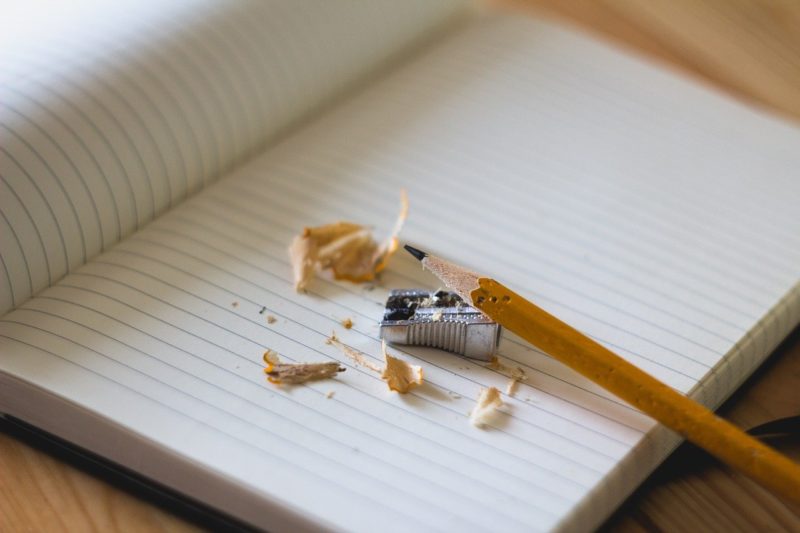
Improve Your Written French Today
Whether you want to pen a love letter or submit an essay in France, you need to know how to write in French. Luckily, learning how to write in French is fairly straightforward. Since French uses the Latin Alphabet, you’re already ahead of the game. Improve your writing in French fast with these easy steps.
The Basics of French Writing for Beginners
When it comes to French writing, it’s a little different than speaking French. But, if you know how to read French well, you shouldn’t have a lot of problems.
Before you read the 8 easy steps of learning to write in French, there’s one important factor in mastering French writing: practice. The only way you can truly improve your French writing skills is with a lot of practice . Make sure you write a little bit in French every day. Soon, you’ll find that writing in French is like second nature.
1. Watch Out for French Spelling
One of the biggest obstacles that throws French learners off is spelling. Unfortunately, those silent letters that you don’t pronounce are very much there in writing. Be careful how you spell certain complicated words. You need to master all parts of French grammar to write French correctly.
2. Genders Influence Grammar in French
You may already know that nouns have genders in French. They can either be masculine or feminine. And depending on the gender, different parts of a French sentence need to be conjugated.
- articles : French articles need to be conjugated to reflect the gender and the number of the noun. These can be ‘le’, ‘la’, ‘l”, and ‘les’ for definite articles, and ‘un’ and ‘une’ for indefinite articles.
- pronouns : Pronouns in French are the words that replace the name of the subject in a sentence. ‘He’, ‘she’, and ‘them’ are some examples of pronouns in English. In French, you need to use different forms of pronouns depending on the gender of the subject.
- adjectives : When you’re describing a noun, you use an adjective. And since the noun is the only reason the adjective’s there in the sentence, you need to make the adjective fit the noun in French. There are various ways to conjugate French adjectives depending on the gender and the number of the noun, so make sure you brush up on that knowledge before you write in French.

3. Careful with French Accent Marks
French accent marks also don’t do us any favors. While they’re extremely useful when it comes to French pronunciation, their writing isn’t as straightforward. Try to associate the sound with the written French word. There are only 5 accent marks in French. One is the cedilla (ç), which only works with the letter “c”, and another is the acute accent (é), which only sits on top of the letter “e”. So in practice, there are only 3 different kinds of accents you should look out for in French.
4. Follow the French Sentence Structures
English and French sentence structures are similar in many ways. Both follow the SVO (subject-verb-object) structure, which makes writing in French much easier. And just like in English, the French sentence structure is also flexible. You can switch the words around to emphasize a part of a sentence, but still have the same meaning.
- Tomorrow , I’m going to work. Demain je vais travailler. I’m going to work tomorrow . Je vais travailler demain .
The most important part of the first sentence is the time the speaker goes to work. The second sentence focuses on the subject, the speaker instead. Still, both sentences convey the same meaning of going to work.
If you want to ask a question in French, you can do so by putting a question word at the beginning of the sentence. Common question words are:
- How Comment
- What Que / Qu’est-ce que queue
- What kind Quel genre
- When Quand
- Why Pourquoi
You can also ask a question by switching the order of the verb and the pronoun around, and connecting them with a hyphen:
- Do you speak English? Parlez-vous anglais ?
It’s important to remember these basic rules of French sentence structure before you start writing in French. If you want to learn how to write in French effectively, practice these 4 steps a lot.

Psst! Did you know we have a language learning app?
- It teaches you useful words and phrases.
- Presented in a natural, everyday context.
- Spaced out over time, so you absorb your new language organically.
- It’s kind of like learning the words to your new favorite song!
You’re only one click away!
How to Write in French for Intermediate Students
If you’re an intermediate French learner you’re familiar with basic French grammar, and you’re confident in writing in French. But, there’s always room to improve. Once you know the basic steps of how to write in French, it’s time to make your writing even better. You can start paying attention to style, flow, and structure. The tips below will benefit your French writing practice.
5. Try Nominalization
This useful technique will make your sentences better. Nominalization means that you make nouns in the sentence more dominant. While in English, the dominant words are verbs, in French, you can write with the focus of the noun instead, making them more meaningful. Here’s an example to demonstrate.
- Normal sentence: The ice cream is cold. – La glace est froide.
- Nominalized sentence: The ice cream is cold. – La glace, c’est droid.
6. Use French Conjunctions
Conjunctions are the tools to write complex French sentences. Without them, you’re limited to simple and boring sentence structures. As an intermediate student, you can start connecting two equal or unequal sentences to make an even more interesting phrase. Here are the different kinds of French conjunctions you can use to write better in French:
Coordinating Conjunctions:
You use these kinds of conjunctions to connect two equal sentences. The most common coordinating conjunctions in French are:

Subordinating Conjunctions:
If one of the sentences in unequal or dependent on the other, you need to use subordinating conjunctions. These connectors often show causality. The most common conjunctions in French for this category are:
7. Style and Flow
Now that you wield the power of conjunctions, you have to be careful with it. As fun as it is to write long and complicated sentences in French, it doesn’t sound good. Make sure you use appropriate sentence lengths as you’re writing in French.
Aim for shorter sentences. Make them explain your point well. But, feel free to mix the flow up with the occasional longer sentences. That’s how you write in French with a nice and smooth flow. And that’s how you perfect your French writing too. It will be a pleasure to read your work.
Writing in French for Advanced Learners
Once you mastered all of the French writing rules, you’re officially an advanced French learner. But, there may still be room to improve your French writing. If you’re looking to kick your projects up a notch, you can learn how to write essays and dissertations in French. These pointers will be useful if you ever attend school or university in France, or you want to take a language exam.
8. Get Familiar with French Essay Structure
When you’re writing an essay, you have to structure it for readability. If you want to learn how French high schoolers are taught to write their essays, this is the structure they follow: thèse-antithèse-synthèse (thesis-antithesis-synthesis). Learn how to write French essays using a traditional French essay structure.
- Introduction : You begin your essay by having an introduction, which is a context for argument.
- Thesis : In this section, you present and defend the statement of your thesis. You need to write everything that supports the topic of your essay.
- Antithesis : The antithesis follows the thesis. This is where you state conflicting evidence and explain other potential substitutes for your essay. Including an antithesis doesn’t mean that you disagree with your original thesis. You just need to show that you thought of all possibilities before arriving to your conclusion.
- Synthesis : This is your conclusion. This is where you summarize your arguments, and explain why you still stand by your original thesis despite the antithesis.

9. Use Introduction and Conclusion Vocabulary
Certain words can encourage sentence flow by introducing or concluding some parts of your work.
- tout d’abord (firstly)
- premièrement (firstly)
- deuxièmement (secondly)
- ensuite (then)
- enfin (finally)
- finalement (finally)
- pour conclure (to conclude)
You can use these words when introducing a new idea to your dissertation or essay. These words will signal the readers that they are encountering a new part or thought of your writing process.
10. Writing a Dissertation in French
This is the form of writing you encounter in French higher education. It’s a very complex form of French writing, only the most advanced and fluent French learners should attempt it. It’s also a longer piece of academic writing. It may take you weeks to complete research and write your French dissertation.
The French dissertation is similar to essay structure. But, there’s one main difference: your thesis isn’t a statement, but rather a question. It’s your job in the dissertation to take the reader through your thought process and research to answer your question. This logic is known as “ Cartesian logic .” It comes from Descartes , who was a well known French philosopher.
History of Written French
French was used in Strasbourg Oaths, and it first appeared in writing in 842 AD. Before then, Latin was the only language used for literature in Europe. However, in the 10th and 11th centuries, French appeared in some religious writings and documents but was not used up to the late 12th century or early 13th century. The first greatest French Literature work, the Song of Roland (Chanson de Roland), was published around the year 1200.
Writing in French Alone Won’t Make You Fluent
You need to learn how to write in French to be proficient in the language. But, it won’t make you fluent. The only way to become fluent is to practice speaking French. While it’s crucial to develop every area of your French knowledge, if you want to be fluent in French, you need a reliable language learning method like OptiLingo.
OptiLingo is an app that gets you speaking, not typing a language. It gives you the most common French words and phrases, so you’re guaranteed to learn the most useful vocabulary. Don’t waste time trying to learn French you’ll never use. Complement your French writing practice with fun speaking exercises when you download OptiLingo !
Related posts

Ultimate Guide to French Verbs: Tenses, Conjugations, and Examples

Express Your Feelings, Mood, and Emotions in French

French Dating Culture and Romantic Relationships

French Pronunciation Guide: How to Speak French in 10 Steps
Many people believe they aren’t capable of learning a language. we believe that if you already know one language, there’s no reason you can’t learn another..

French Your Way
Learn French Online | Learn French Melbourne | French Voices Podcast
How to Write The Perfect French Essay For Your Exam
November 16, 2014 by Jessica 3 Comments
Here are tips to help you write a great French essay with exam requirements in mind. Once you’re done, I strongly suggest you proofread your text using my checklis t.
Note: if you’re preparing for the French VCE, there is an updated version of these exam tips in my guide “How to Prepare for the French VCE & Reach your Maximum Score” .
While supervising exams or tutoring for exam preparation, I’ve seen too many students writing straight away on their exam copies. Stop! Resist the urge to jump on your pen and take a step back to make sure that you will be addressing all the exam requirements or you may be shooting yourself in the foot and lose precious points.
I recommend that you train with exam sample questions so that you set up good working habits and respect the required length of the essay, as well as the timing (allow at least 10 minutes for proofreading).
Crafting your French Essay
1. identify the situation: preparation work.
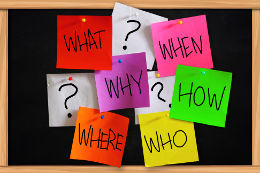
- Read the topic carefully, slowly and at least twice to absorb every information/detail.
- Underline/highlight/jot down any piece of information that you are expected to reuse:
- What type of text do you need to write? (a journal entry? A formal letter? A speech? Etc). Note to VCE French exam students : refer to page 13 of the VCE French Study Design for more information about the different types of texts.
- Who are you in the situation? (yourself? A journalist? etc)
- Who are you addressing? (a friend? A large audience? Etc) à adjust the degree of formality to the situation (for example by using the “tu”/”vous” form, a casual or formal tone/register, etc)
- What are the characteristic features of the type of text you need to write? (eg a journal entry will have the date, a formal letter will start and end with a formal greeting, etc)
- What is your goal ? What are you expected to talk about / present / defend / convey?
- What are the length requirements for your French essay ? Respect the word count (there’s usually a 5% or so tolerance. Check the requirements specific to your exam)
Tip : when you practice at home, count how many words in average you fit on a line. This will give you a good indication of how many lines your text should be.
Ex: You write an average of 15 words per line. If you are required to write a 300-word French essay, you should aim for:
300 words / 15 words per line = 20 lines total.
2. Draft the outline of your essay
- An essay typically has an introduction, a body with 2 or 3 distinct parts and a conclusion . (See if that outline is relevant to the type of text you are expected to write and adjust accordingly.)
- Use bullet points to organize your ideas.
- Don’t remain too general. A good rule is to use one main idea for each part and to back it up/reinforce in/illustrate it with one concrete example (eg. data).
- Brainstorming about things to say will also help you use a wider range of vocabulary , which will get noticed by the examiner. Are there some interesting/specific words or expressions that you can think of using in your text (example: if you are writing about global warming, brainstorm the vocab related to this topic. Brainstorm expressions to convince or disagree with something, etc)?
- Make sure you have reused every point identified in part 1 .
3. Write your essay
- It’s better if you have time to write or at least draft a few sentences on your draft paper rather than writing directly because:
- You want to meet the word count requirements
- You don’t want multiple words to be barred cross crossed-out and your page looking messy and great anything but neat!
- you don’t want to have to rush so much that your handwriting is really unpleasant to read (or worse, impossible to read…)
- So… monitor your time carefully!
Structuring your text
- Visually, the eye should instantly be able to see the structure of your French essay: make paragraph and skip lines so that it doesn’t look like an unappealing large block of text.
- Use connectors/link words to structure your text and make good transitions.
4. Proofread, proofread, proofread!
- It’s important that you allow at least 10 minutes for proofreading because there most likely are a few mistakes that you can fix very easily. It would therefore be a shame not to give yourself your best chances of success! Check out my Proofreading Checklist.
Bonne chance!
If you need any help with your essay, you can submit it to me there.
- Articles & Tutorials
- French Voices Podcast
- French Your Way Podcast
- News & Updates
info (at) frenchyourway.com.au
PO Box 166, Balaclava, Vic 3183, Australia
Search The Canadian Encyclopedia
Enter your search term
Why sign up?
Signing up enhances your TCE experience with the ability to save items to your personal reading list, and access the interactive map.
- MLA 8TH EDITION
- Girouard, André et al. "Essay in French". The Canadian Encyclopedia , 04 March 2015, Historica Canada . www.thecanadianencyclopedia.ca/en/article/essay-in-french. Accessed 04 April 2024.
- The Canadian Encyclopedia , 04 March 2015, Historica Canada . www.thecanadianencyclopedia.ca/en/article/essay-in-french. Accessed 04 April 2024." href="#" class="js-copy-clipboard b b-md b-invert b-modal-copy">Copy
- APA 6TH EDITION
- Girouard, A., & Andres, B., & Mailhot, L., & Dorion, G. (2015). Essay in French. In The Canadian Encyclopedia . Retrieved from https://www.thecanadianencyclopedia.ca/en/article/essay-in-french
- The Canadian Encyclopedia . Retrieved from https://www.thecanadianencyclopedia.ca/en/article/essay-in-french" href="#" class="js-copy-clipboard b b-md b-invert b-modal-copy">Copy
- CHICAGO 17TH EDITION
- Girouard, André , and Bernard Andres, , and Laurent Mailhot, , and Gilles Dorion. "Essay in French." The Canadian Encyclopedia . Historica Canada. Article published February 07, 2006; Last Edited March 04, 2015.
- The Canadian Encyclopedia . Historica Canada. Article published February 07, 2006; Last Edited March 04, 2015." href="#" class="js-copy-clipboard b b-md b-invert b-modal-copy">Copy
- TURABIAN 8TH EDITION
- The Canadian Encyclopedia , s.v. "Essay in French," by André Girouard, Bernard Andres, Laurent Mailhot, and Gilles Dorion, Accessed April 04, 2024, https://www.thecanadianencyclopedia.ca/en/article/essay-in-french
- The Canadian Encyclopedia , s.v. "Essay in French," by André Girouard, Bernard Andres, Laurent Mailhot, and Gilles Dorion, Accessed April 04, 2024, https://www.thecanadianencyclopedia.ca/en/article/essay-in-french" href="#" class="js-copy-clipboard b b-md b-invert b-modal-copy">Copy
Thank you for your submission
Our team will be reviewing your submission and get back to you with any further questions.
Thanks for contributing to The Canadian Encyclopedia.
Essay in French
Article by André Girouard , Bernard Andres , Laurent Mailhot , Gilles Dorion
Published Online February 7, 2006
Last Edited March 4, 2015
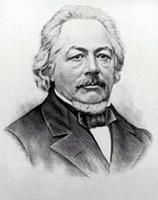
The hallmark of the French Canadian essay is that it is both personal (or subjective) and creative. The essay stands apart from any writing that claims to offer an objective explanation of reality or explores a preordained, objective truth that is assumed to be valid for any time and place. The essayist is not at the service of the truth, a cause or a class: he proclaims and defends his own irreducible sincerity and recognizes that, while his experience and the account he gives of it are subjective, they may still serve as a model to others. The essay may range from popular to scholarly treatment of a subject. The writer may just as easily deal with a scientific subject as with a theological, literary or political one, and his tone may be polemical or discursive. The literary quality of an essay, as of any other genre, rests in the quality of the writing, in the capacity of the author to interpret the world about him, to reconstruct it and awaken in the reader as much admiration and wonder for the interpretation as for the reality being interpreted.
ANDRÉ GIROUARD
Pamphlets and Polemics
Philosophical and political essays, pamphlets, manifestos and polemic exchanges are all arguably forms of the essay. When placed in their original contexts, they afford excellent opportunities to observe sociopolitical and cultural phenomena of their eras. Polemical texts and pamphlets are not always self-evidently critical in nature, and they are made all the more effective when the author's indignation is camouflaged. A complete polemic structure is to be found as an undercurrent in accounts of early voyages, in private and administrative correspondence and in the writings of religious orders in New France. Generally addressed to authorities in the mother country, these texts crystallize metropolitan antagonisms around Canadian situations. They contain a double contradiction, expressing the New World in the linguistic and cultural codes of the mother country, which is itself replete with antagonisms such as those between Recollets and Jesuits or, at another level, proponents of evangelization and champions of exploitation.
The texts of Cartier, Champlain, Lescarbot, Biard and Sagard, and the JESUIT RELATIONS ( see EXPLORATION AND TRAVEL LITERATURE IN FRENCH ) should be read in the context of the actual conditions in which they were written (literary strategies, thinly veiled battles to obtain local credit, privilege and power). So, too, should one read the protests of Canadian naval personnel against French officers during the Seven Years' War. Essays of protest continued to be written after the Conquest, and pamphlets regarding the GUIBORD AFFAIR (1869-74) and the battle between Monseigneur BOURGET and the INSTITUT CANADIEN carried the genre into the late 19th century. Parliamentary battles in the Canadas gave scope to the pamphleteer and essayist as well: oratorical jousts were taken up and exaggerated in the polemics between francophone and anglophone newspapers (eg, in the Anti-Gallic Letters ).
Striking examples of the use of polemical essays in political settings include exchanges during the MANITOBA SCHOOLS QUESTION (1890-96), the anticommunist campaigns of the 1930s ( Pamphlets de Valdombre , 1936-43) and the CONSCRIPTION debates during the 2 world wars. In 1960 Jean-Paul DESBIENS , in LES INSOLENCES DU FRÈRE UNTEL , and Gilles Leclerc, in Journal d'un inquisiteur , took up the language debate and other matters with vehemence. The authors offer pragmatic commentary on current events, using this as a device to discredit the targets of their scorn, hoping thus to alter the attitudes of the reading public. Since the QUIET REVOLUTION there has been an explosion of polemical writings about independence, unionism and native people by leftist individuals, groups and magazines. More recently feminism held the limelight, with its radical challenge to all the institutions that have traditionally excluded women.
BERNARD ANDRES
Political Essay
Political essays may be distinguished from other works in the fields of history, sociology and political science as the products of a more personal and untrammelled quest. Memoirs, reminiscences, notebooks, diaries and autobiographical fragments all overlap partially and unevenly with the political essay. Among the best political memoirs in French are the 3 volumes by Georges-Émile LAPALME , the leader of the Québec Liberal Party who was caught between Premier Maurice DUPLESSIS and Prime Minister Louis ST-LAURENT . He makes some lucid comments on the subject of the limits of political action.
The major political or ideological essays of the 19th century were not the work of orators or public figures (Papineau, Mercier, Laurier) but the discussions and chronicles of some leading journalists (Étienne PARENT , Arthur BUIES ). L'Avenir du peuple canadien-français (1896), by sociologist Edmond de Nevers, was a cultural and deeply political essay, a mixture of idealism, pessimism and prophecy. In the 20th century as well, the best political essays have been the work of a few well-educated journalists (Olivar Asselin, Jules Fournier, André LAURENDEAU ) and nationalist historians (Lionel GROULX , Michel Brunet). They raised (or revived) the question of Québec's relations with London and Paris and with English Canadians; they were as concerned about war and conscription as about elections.
The birth of political magazines free from party affiliation - CITÉ LIBRE (1950-66) and PARTI PRIS (1963-68) - led to a proliferation of the political essay. The collection of articles, studies and testimonials about the ASBESTOS STRIKE , La Grève de l'amiante (1956), which appeared with a comprehensive introduction by Pierre Elliott TRUDEAU , was the prototype for numerous other collections. Many were the products of conferences, such as that held in Cerisy-la-Salle, France ( Le Canada au seuil du siècle de l'abondance , 1969), which had brought together Francophones of every persuasion. Independentists produced manifestos, declarations and testimonies, but also a few essays of a more structured nature, such as Le Colonialisme au Québec (1966) by André d'Allemagne.
A Marxist-tinged theory of decolonization, inspired by the experiences and rhetoric of developing nations, marked a number of the essays published at the beginning of the Quiet Revolution, in particular NÈGRES BLANCS D'AMÉRIQUE (1968) by Pierre Vallières. Neo-federalists (most of them in the group around Trudeau and Gérard PELLETIER ) began countering the arguments of the fervent neo-nationalists. They seemed to be calmer and more staid than their antagonists, but they were just as lively in their use of history and statistics. Essays in their true form were rare: the writers slid easily from a constitutional treatise or thesis to a circumstantial or journalistic approach.
Some of the meatiest and most thought-provoking essays written since the late 1960s are Le Canada français après deux siècles de patience (1967) by political scientist Gérard Bergeron; LA DERNIÈRE HEURE ET LA PREMIÈRE (1973) by Pierre VADEBONCOEUR , trade unionist turned writer; La Question du Québec (1971) by sociologist Marcel Rioux; and Le Développement des idéologies au Québec (1977) by political scientist Denis Monière. The most trenchant political essays are perhaps to be found in certain novels (eg, those of Hubert AQUIN and Jacques FERRON ).
Québec political essayists have been obsessed since the mid-1960s by the state and the constitution. Subjects now discussed move beyond partisanship and dogma to a new definition of the central issue: the division of powers is not solely a Québec-Ottawa dispute; it is also an issue for Montréal and its suburbs, the regions of Québec, women and ethnic and marginal groups. The postreferendum period was marked by important essays on language and culture as well as economics and the role of the state. Among the less systematic but more intense and vivid of the collections were those of columnists Lysiane Gagnon ( Chroniques politiques , 1985) and of Lise Bissonnette ( La Passion du présent , 1987), whose "Les Yvettes" served as a stimulus for the Non faction. René Lévesque contributed his memoirs ( Attendez que je me rappelle ... , 1986). Then there was a study of international as well as national politics, more precisely, the Québec-Ottawa-Paris triangle, by former minister of intergovernmental affairs Claude Morin.
Since the midseventies, the literary journal Liberté has published the best political essays on topics such as language and translation, official bilingualism and biculturalism, culture, money and the State. It has dedicated special issues to topics such as referendums, majorities and minorities and Anglo-Montrealers. Many contributors to Liberté include political articles in their collections of essays. For the late André Belleau ( Surprendre les voix , 1986), BILL 101 is not racist, but anti-racist, a tool of development. So thinks Jean Larose, whose la Petite Noirceur won a controversial Governor General's Award in 1987. Larose is a vivid polemicist in la Souveraineté rampante (1994), addressed to shy, tired, soft sovereigntists.
For Belleau, Larose and Liberté's editors, François Ricard, François Hébert, Marie-Andrée Lamontagne and their friends, it is not difficult to be a Québec independentist without being a narrow, ethnic nationalist. For Mordecai RICHLER 's followers, it is impossible. For college teacher Nadia Khouri ( Qui a peur de Mordecai Richler? , 1995), there is no real difference between right-wing Canon GROULX and René LÉVESQUE or Le Devoir ; bad Québec's ideological elites are opposed to good old grass-rooted people.
Original points of view on individual and collective identity may be found in Lise Gauvin's Lettres d'une autre (1984), whose main question is inspired by Montesquieu: "Comment peut-on être Québécois(e)? " The second volume of former minister and poet Gérald Godin's Ecrits et parlés is about Politique (1993), before and after 1976, when he defeated Premier Robert Bourassa in his own riding. Critic and novelist André Brochu's La Grande Langue (1993) is an ironical panegyric of English as a language of power. Genèse de la societé québécoise (1993) by sociologist Fernand Dumont is a strong synthesis of French Canadian history, memory, consciousness. Dumont published also Raisons communes (1995), a collection of substantial articles on foundations, collective identity, democracy, intellectuals and citizens, and French (a "language in exile").
LAURENT MAILHOT
Literary Essay
Unlike literary criticism, which necessarily passes judgement on the work under study, the literary essay freely considers the written work, offering nondefinitive, personal comments on its aesthetic value. The literary essay first appeared in newspapers and magazines of the mid-19th century as well as in papers presented in literary circles, at the Institut canadien and in similar reading groups. These first stirrings prepared the way for true literary essayists, Étienne Parent and Napoléon Aubin, Abbé Henri-Raymond CASGRAIN , Octave CRÉMAZIE , Arthur Buies and a few others who were prompted by religious and moral concerns to deal with aesthetic questions.
The literary essay developed along nationalist and regionalist lines in Québec in the early 20th century, thanks to Laval professor Camille ROY , who explored the "nationalization" of French Canadian literature in some 30 essays. He was followed by Olivier Maurault and Émile Chartier of Université de Montréal, and other major voices of nationalism such as Lionel Groulx, who concentrated on the land, the parish, the family, religion, customs and ancestral traditions - and by the next wave, regionalist writers associated with the journals Le Pays laurentien , La Revue nationale and L' ACTION FRANÇAISE (later L'Action canadienne-française and then L'Action nationale ).
The "Parisianists" ("exotics"), who followed modern French thought in their subjects and writings and often sharply disagreed with the first group, included Paul Morin, Marcel Dugas, Jean Charbonneau, Robert de Roquebrune, Olivar Asselin, Victor Barbeau and his Cahiers de Turc (1921-22; 1926-27), and the people associated with LE NIGOG , Cahiers des Jeunes-Canada and LA RELÈVE . In the long run, the often vigorous disagreements led to an affirmation of a French Canadian literature that was autonomous yet always strongly influenced by France.
With this ideological battle behind them, writers could finally pay serious attention to the different genres of expression. From 1940 to 1960 the literary essay was particularly important. The many publications included writings about Canadian as well as French authors; general studies of French Canadian literature by critics such as Roger Duhamel, Benoît Lacroix and Séraphin Marion; specialized studies of THEATRE by Léopold Houlé and Jean Béraud, of poetry by Jeanne Crouzet and of the novel by Dostaler O'Leary; and histories of literature by Samuel Baillargeon, Berthelot Brunet and Auguste Viatte.
The proliferation of literary essays has been boosted since the Quiet Revolution by the development of the teaching of Québec literature ( see LITERATURE IN FRENCH: SCHOLARSHIP AND TEACHING ). Analyses of literature and of literary movements (the historical novel, the novel of the soil, literary nationalism, Parti pris , the AUTOMATISTES , surrealism) were accompanied by many essays dealing with literary genres: the novel (Gérard Bessette, Yves Dostaler, Jacques Blais, Maurice Lemire, Gilles Marcotte, Mireille Servais-Maquoi, Henri Tuchmaïer); theatre (Michel Belair, Beaudoin Burger, Jacques Cotnam, Martial Dassylva, Jan Doat, Jean-Cléo Godin and Laurent Mailhot, Chantal Hébert, G.E. Rinfret); poetry (Paul Gay, Philippe Haeck, Jeanne d'Arc Lortie, Axel Maugey); and the literary essay (Jean Terrasse). There were treatments of specific subject matter (themes of the family, of winter, etc), a host of monographs on French Canadian writers, general studies of Québec literature (Guy Laflèche, Gilles Marcotte, Jean Ménard, Guy Robert) and histories of literature (Pierre de Grandpré, Laurent Mailhot, Gérard Tougas). There are also collective literary essays such as the Archives des lettres canadiennes , and anthologies, including L'Anthologie de la littérature québécoise (directed by Gilles Marcotte) and the Dictionnaire des oeuvres littéraires du Québec (directed by Maurice Lemire) - highly useful works, although their contents tend to be literary criticism rather than essays. Only rarely do Québec essayists study broad issues the way Europeans do. Finally, most Québec literary essays are aimed at students and professors in both foreign and Québec colleges and universities, though they are occasionally intended to reach a larger public.
GILLES DORION
Authors contributing to this article:
Recommended

Foreign Writers on Canada in French
Literature in french: scholarship and teaching, literary prizes in french.
- Look up in Linguee
- Suggest as a translation of "essays"
Linguee Apps
▾ dictionary english-french, essays noun, plural ( singular: essay ) —, essais pl m ( singular: essai m ), essay noun —, essai m ( plural: essais m ), étude f ( plural: études f ), dissertation f, composition f ( plural: compositions f ), rédaction f ( plural: rédactions f ), photo essay n —, essay writing n —, essay contest n —, essay competition n —, short essay n —, research essay n —, argumentative essay n —, photographic essay n —, critical essay n —, written essay n —, essay topic n —, long essay n —, literary essay n —, brief essay n —, philosophical essay n —, political essay n —, first essay n —, second essay n —, ▸ wikipedia, ▾ external sources (not reviewed).
- This is not a good example for the translation above.
- The wrong words are highlighted.
- It does not match my search.
- It should not be summed up with the orange entries
- The translation is wrong or of bad quality.
Academia.edu no longer supports Internet Explorer.
To browse Academia.edu and the wider internet faster and more securely, please take a few seconds to upgrade your browser .
Enter the email address you signed up with and we'll email you a reset link.
- We're Hiring!
- Help Center

How do I efficiently write essays in French?

This worksheet is geared towards advanced French Majors. It provides guidance on and tools for essay-writing in various genres. It is accompanied by “Know Your Audience: Undergraduate Writing and Speaking.” For oral assignments, please consult “What Makes For an Efficient Oral Presentation?” This document was created in Winter 2021 and last updated in Summer 2023. For its last revision, the author benefited from the valuable input of former students Marley Fortin, Merve Ozdemir, and Elizabeth Swanson.
Related Papers
Johannes Junge Ruhland
The aim of this worksheet is to provide advanced undergraduates with the tools to tailor their written and oral assignments to a well-defined audience in a specific communicative context such as written assignments and in-class presentations. The imagined audience of this paper are French literature Majors. This worksheet accompanies how-to guides specifically for undergraduate essay-writing in French and undergraduate oral presentations in literature and related fields: “How Do I Efficiently Write Essays in French?” and “What Makes for an Efficient Oral Presentation?” It was created in Summer 2023 with the valuable input and feedback of former students Kayne Belul and Emily Martinez.
Hela Mornagui
Paul Wadden
afraz ahmad
International Journal for Research in Applied Sciences and Biotechnology
Muhammad Hattah Fattah
Writing is one of the most well-known phenomena that may help a civilization evolve and improve. Writing is how a society's knowledge, literature, and culture are passed down from generation to generation for millennia. Writing, as a significant aspect of civilization, should be constantly improved, updated, and given special attention so that it can carry knowledge across generations in the most efficient manner possible. We all know that writing is a difficult process that needs more thought and time. This difficult activity needs extreme care in order to be completed correctly. In this study topic, I've covered a wide range of topics related to essay writing, including how to write an essay, the stages to writing an essay, why write an essay, prewriting, and how to research, prepare, and write an essay. The purpose of the research on this topic is, in the first how to research and write an academic essay, steps and plans of writing an essay, essay writing checklist and th...
Teodora Popescu
Cette étude présente l’analyse d’un corpus d’essais écrits par des apprenants de la langue anglaise (LEWC) compte tenu de la perspective offerte par l’analyse computationnelle. Le sous-corpus de LEWC visé par notre ci-présente analyse comprend 30 essais (environ 13 600 mots) rédigés par des apprenants de la langue anglaise, ayant un niveau intermédiaire, ceux-ci étant étudiants en sciences économiques. Tout en utilisant de divers moyens de l’analyse computationnelle nous avons élaboré une classification des types d’erreurs y enregistrées. Nos futures recherches seront dirigées vers l’amélioration des compétences en anglais écrit.
Betsy Gilliland
Ned Stuckey-French
Writing academic texts is an inevitable component of contemporary higher education; writing in a more specific sense is an indispensable method when teaching a particular subject (Blau, 2003). As a species of text, essay-form is an integral piece of writing in which one expresses in depth his/her opinions or feelings on a particular subject. In higher education teaching, essay-form has been used mainly as an individually graded writing task, which enables students to align their own subjective points of view to more general philosophical or scientific perspectives. For this type of academic or English style essay, it is common to have a rather personal discursive overall mood, critical and argumentative perspective, and stylistic comprehension. While the essay, in its traditional form, involves logic, dialectics, and rhetoric, it still enables students to put forward their own personal views as well as to interpret the variety of generic features of the essay-form in a more general ...
Natalie G Sharpling
RELATED PAPERS
harold andres ordoñez muñoz
The Journal of Arthroplasty
Henrik Malchau
Joachim Spangenberg
Archives of Computational Methods in Engineering
Darren Mifsud
Fitopatologia Brasileira
Edna Dora Newman Luz
Eckhard Burkatzki
Guillermo Velázquez
Journal of Physics: Condensed Matter
Elmustapha Feddi
medigraphic.com
oscar manuel berlanga bolado
Derek Rosenzweig
Vanja Tanasić
ECTI Transactions on Computer and Information Technology (ECTI-CIT)
Ureerat Suksawatchon
Agricultural Systems
Jeremy Haggar
Pollarise GROUPS
Sustainable Competitive Advantage
Najmudin Najmudin
Catalysis Today
Johannes Schwank
Human immunology
James Mathew
Dayan Sipahutar
Internal Medicine
Akira Takahashi
Journal of Affective Disorders
Enrico Massimetti
Agricultural Engineering International: The CIGR Journal
Mohamed Samer
Jerry Coakley
ARAM Periodical Volume 34
Patrick Scott-Geyer
Jean-Michel Schroëtter
British Journal of Pharmacology
Patricio Castro Sáez
See More Documents Like This
RELATED TOPICS
- We're Hiring!
- Help Center
- Find new research papers in:
- Health Sciences
- Earth Sciences
- Cognitive Science
- Mathematics
- Computer Science
- Academia ©2024
- Free Resources
- 1-800-567-9619
- Subscribe to the blog Thank you! Please check your inbox for your confirmation email. You must click the link in the email to verify your request.
- Explore Archive
- Explore Language & Culture Blogs
What’s The Problem? – Writing A Thesis In French Posted by John Bauer on Aug 31, 2016 in Culture , Vocabulary
These past few weeks I’ve been hard at work on mon mémoire (my thesis). The last big project for un diplôme (a degree) is always hard, and writing un mémoire in another language makes the whole process even more of un casse-tête (a headache).

“ Place de la Sorbonne ” by Alan on Flickr. Licensed under CC BY-NC-ND 2.0.
I came to France to do mon master (my Master’s), and it has been an interesting exeprience learning how nobody’s perfect and what a CM and TD are . Now hard at work on mon mémoire , I’m struggling to find enough café (coffee) to keep me going.
Writing more than cinquante pages (fifty pages) en français has been tough. I can’t tell you how many times I’ve mixed up the words une mémoire (a memory) and un mémoire (a thesis). Not to mention all the other dual gender nouns .
To make things easier, le mémoire should follow le plan (the outline), but sometimes il est difficile de savoir par où commencer (it’s hard to know where to start).
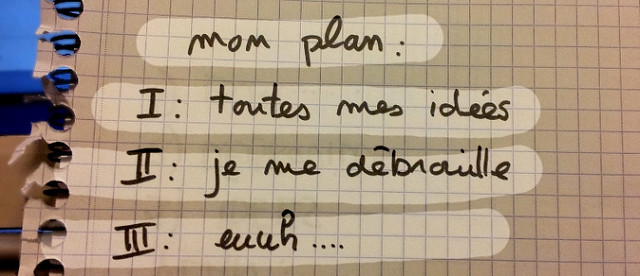
“ Plan de dissertation ” by dicophilo on Flickr. Licensed under CC BY-SA 2.0.
Figuring out une problématique is a big part of writing un mémoire . Once you have une idée (an idea) you have to fix not just le grammaire (the grammar), but le raisonnement et la logique (the reasoning and logic) as well.
C’est quoi une problématique ? What is une problématique?
Une problématique is a thesis statement to some people. In my experience, they are used in the same general educational contexts. Cependant (however), they do not mean exactly the same thing.
The word for a thesis statement is une thèse principale or un énoncé de la thèse .
It’s a subtle difference, but la problématique is more about defining the research problem or outlining the research problem rather than a summary of the main point or presenting un point de vue (a point of view) and making a claim.
It can be difficult to understand how to succeed in the French education system without understanding this difference. Surtout (especially) because in the classroom you’ll hear le professeur (the professor) talk about the importance of la problématique in the same way you would hear le professeur talk about the thesis statement in aux États-Unis (in the United States).
There is also a lot to learn about les travaux universitaires (academic writing). All the nuances of specific wordings can easily get lost in translation. The main ideas of writing clearly, citing your sources, creating a bibliography, and proper formatting are all the same, but the details can be different enough that figuring out how to write correctly is un casse-tête .
De plus (what’s more), if you went to school in the US, you are probably familiar with MLA or APA formatting and it’s hard to realize that those are American guidelines.
Ne vous inquiétez pas ! Don’t worry!
In France, all the information you need is in le guide de mise en page (the style guide) provided by le professeur .
Maintenant (now), the biggest problem I have is that with la canicule it’s too hot to drink du café !

Build vocabulary, practice pronunciation, and more with Transparent Language Online. Available anytime, anywhere, on any device.

About the Author: John Bauer
John Bauer is an enthusiast for all things language and travel. He currently lives in France where he's doing his Master's. John came to France four years ago knowing nothing about the language or the country, but through all the mistakes over the years, he's started figuring things out.
Voice speed
Text translation, source text, translation results, document translation, drag and drop.

Website translation
Enter a URL
Image translation
You are using an outdated browser. Please upgrade your browser or activate Google Chrome Frame to improve your experience.
A Simple Guide to Talking About School in French: Subjects, Rooms and More
School and education is one of the most common talking points for French learners.
Whether you’re navigating a new French class, preparing for the speaking portion of a test like the GCSE or making friends with French-speaking students , it’s important to know lots of school vocabulary.
That’s exactly what I’ll give you in this post, with more than 100 words for people, places and things you’ll need to know for talking about school in French!
People at School
Levels of schooling, school subjects, rooms in a school building, school supplies, school assignments, and one more thing....
Download: This blog post is available as a convenient and portable PDF that you can take anywhere. Click here to get a copy. (Download)

L’étudiant / L’étudiante – Student
Le/ La camarade de classe – Classmate
Le professeur – Teacher/Professor
L’entraîneur – Coach
L’infirmier / L’infirmière – Nurse
Le proviseur / Le chef d’établissement – Principal or Headmaster
Le proviseur adjoint – Vice Principal

L’école – School
L’école public – Public school
L’école privée – Private school
L’école de langue – Language school
L’école maternelle – Preschool
L’école primaire – Primary school
Le collège – Middle school
Le lycée – High school
L’université / la fac – College
L’université is the official term for “college,” but many French people casually refer to college as la fac .
Je suis à la fac cette année. (I am in college this year.)
L’école supérieure de troisième cycle – Graduate school
Le doctorat – Doctorate degree
La faculté de médecine – Medical school
La faculté de droit – Law school
Je vais au / à la … – I go to …
Je vais au lycée. (I go to high school.)
Je vais à la fac de médecine. (I go to med school.)

Le cours préparatoire or CP – First grade
Le cours élémentaire 1re année or CE1 – Second grade
Le cours élémentaire 2e année or CE2 – Third grade
Le cours moyen 1re année or CM1 – Fourth grade
Le cours moyen 2e année or CM2 – Fifth grade
La sixième – Sixth grade
La cinquième – Seventh grade
La quatrième – Eighth grade
La troisième – Ninth grade
La seconde – 10th grade
La première – 11th grade
La terminale – 12th grade
La première année d’université – First year of college
La seconde année d’université – Second year of college
La troisième année d’université – Third year of college
La quatrième année d’université – Fourth year of college
Être en – To be in [grade]
Mon fils s’appelle Daniel. Il est en CM1. (My son’s name is Daniel. He is in fourth grade.)
Je suis en première année à l’université. (I am in my first year of college.)

Le français – French
L’anglais – English
L’espagnol – Spanish
L’allemand – German
Le latin – Latin
Les maths – Math
Les sciences – Science
L’éducation physique – PE
L’histoire – History
La géographie – Geography
La biologie – Biology
La physique – Physics
La chimie – Chemistry
L’algèbre – Algebra
La géométrie – Geometry
Le calcul – Calculus
Les arts plastiques – Art
La musique – Music
Le théâtre – Theater
La chorale – Choir
L’orchestre – Band
La littérature – Literature
L’écriture créative – Creative writing
La médecine – Medicine
Le droit – Law
J’ai … maintenant. – I have … now.
Je dois partir! J’ai chimie maintenant . (I have to leave! I have chemistry now.)
J’ai espagnol à 9h. (I have Spanish at 9am)
Je suis un cours de… – I am taking a course in…
Je suis un course d ‘écriture créative cette année. (I am taking a creative writing course this year.)
Note that the verb used here is suivre (literally, “to follow”), not être (to be).
J’aime… – I like…
J’aime le théâtre. C’est mon cours préféré! (I like theater. It is my favorite class!)
Je n’aime pas – I don’t like …
Je n’aime pas la géographie. C’est barbant! (I don’t like geography. It’s boring!)

La salle de classe – Classroom
Le bureau – Office
Le bureau du proviseur – Principal’s office
L’infirmerie – Nurse’s office
Le gymnase – Gym
La cafétéria / la cantine – School cafeteria
Le resto-U – University cafeteria
La résidence universitaire – Dormitory
Le laboratoire / le labo – Laboratory
L’amphithéâtre / l’amphi – Lecture hall
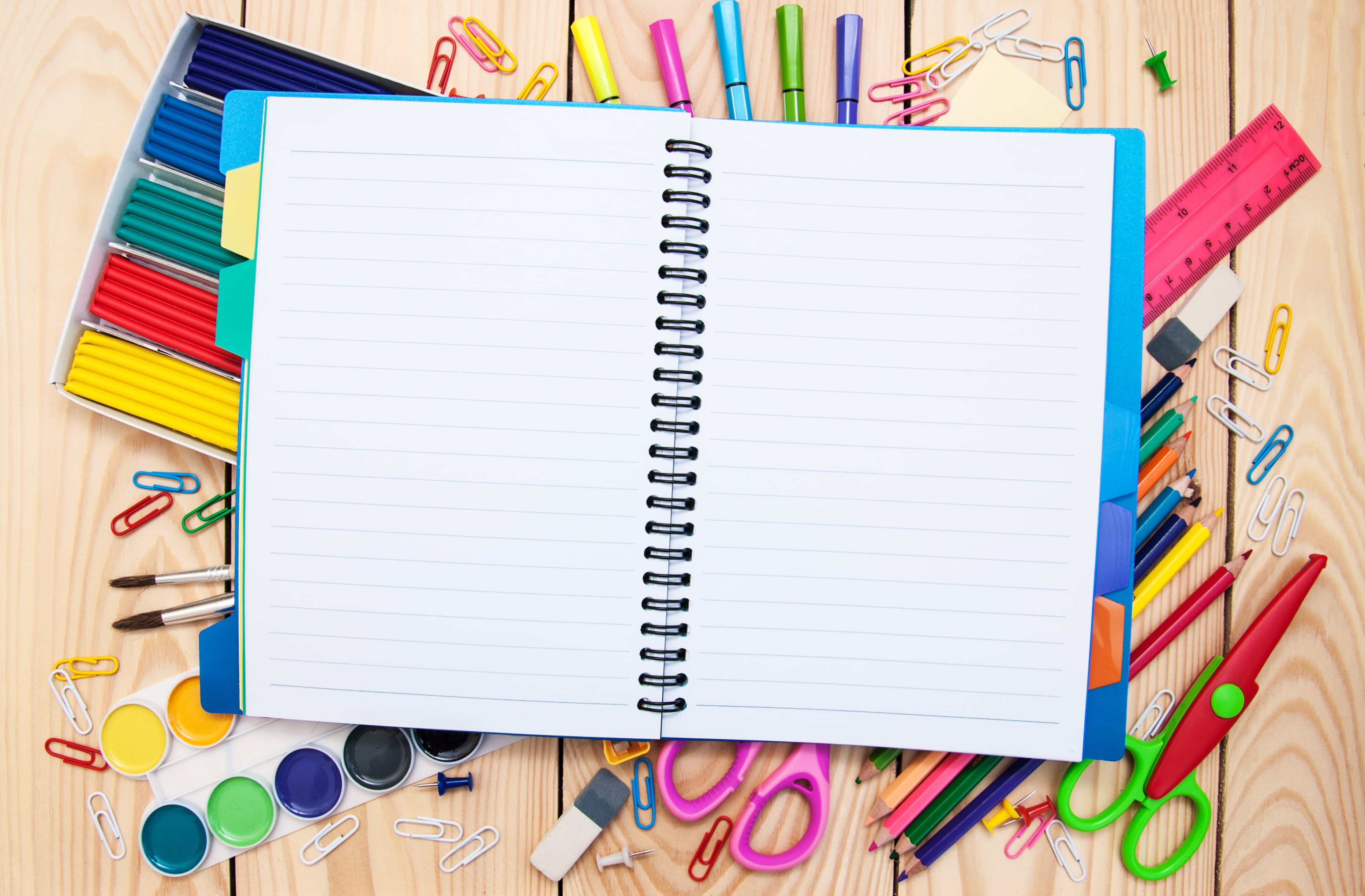
Le cahier / le carnet – Notebook
Le manuel – Textbook
Le classeur – Binder/folder
Le stylo – Pen
Le crayon – Pencil
La calculatrice – Calculator
L’ordinateur – Computer
Le portable – Laptop
Le sac à dos – Backpack
Le surligneur – Highlighter
La gomme – Eraser
La craie – Chalk
Le marqueur – Felt tip marker
L’éponge – Eraser for the chalkboard or whiteboard
La colle – Glue
Les crayons de couleur – Colored pencils
Les crayons gras – Crayons
La règle – Ruler
Les fiches – Index cards
La gamelle – Lunchbox
Le papier – Paper
Le papier millimétré – Graph paper
Le correcteur fluide – White-out
Les ciseaux – Scissors
L’agrafeuse – Stapler

Le devoir – Assignment/paper
Les devoirs – Homework
Yes, a specific assignment and homework in general (which may include multiple assignments) are differentiated simply by making the word plural. Languages are weird, aren’t they?
L’interro – Quiz
L’examen – Exam/test
L’attestation de DELF /DALF – DELF/DALF certification
If you study abroad or study at a language school, you might try to earn your DELF or DALF certification .
DELF stands for Diplôme d’études en langue française , or “Diploma in French Studies.” DALF stands for Diplôme approfondi de langue française , or “Diploma in Advanced French.”
Le discours – Speech
Le diplôme – Degree
J’ai un diplôme en… – I have a degree in…
J’ai un diplôme en pédagogie de langue française. (I have a degree in French education.)
À rendre… – Due
Mes devoirs de sciences sont à rendre demain. (My science homework is due tomorrow.)
Désolé, je ne peux pas sortir ce soir. J’ai un long devoir à rendre cette semaine. (Sorry, I can’t go out tonight. I have a long paper due this week .)
Now that you know these terms and basic phrases for talking about school in French, you can show off to your teachers and classmates!
Don’t get schooled by tricky vocabulary. Show it who’s in charge!
FluentU has a wide variety of great content, like interviews, documentary excerpts and web series, as you can see here:

FluentU brings native French videos with reach. With interactive captions, you can tap on any word to see an image, definition and useful examples.

For example, if you tap on the word "crois," you'll see this:

Practice and reinforce all the vocabulary you've learned in a given video with learn mode. Swipe left or right to see more examples for the word you’re learning, and play the mini-games found in our dynamic flashcards, like "fill in the blank."

All throughout, FluentU tracks the vocabulary that you’re learning and uses this information to give you a totally personalized experience. It gives you extra practice with difficult words—and reminds you when it’s time to review what you’ve learned.
Start using the FluentU website on your computer or tablet or, better yet, download the FluentU app from the iTunes or Google Play store. Click here to take advantage of our current sale! (Expires at the end of this month.)
Enter your e-mail address to get your free PDF!
We hate SPAM and promise to keep your email address safe

- Write for us
- Privacy Policy
- Terms and Conditions

20+ Easy Ways To Describe Your Daily Routine In French With Vocabulary & Example
- Post author: Elijah Logan
- Post last modified: March 27, 2023
- Post category: French Vocabulary / Popular Reviews

Are you struggling to describe your daily routine in French? If yes, then this article is for you.
Interaction with others is something you cannot avoid. As a French learner, there will be times when you will be required to make small talk or engage in entire conversations with others.
One of the most common things people ask while talking to others is their day and daily lifestyle or routine.
The lexicon of everyday activities is quite crucial in French. Thus you must boost your daily routine vocabulary to learn how to describe your routine, and what French daily life looks like.
To help you learn better, we have explained each part with practice examples.
So, let us begin and help you write your daily routine essay in French for everyday practice.
10 phrases sur la routine quotidienne en français. – 10 phrases about the daily routine in French.
- Je me réveille tous les matins à 6h00. – I wake up every morning at 6:00 a.m.
- Je me lave le visage et je vais me promener dans le jardin et faire du jogging. – I wash my face and go for a walk in the garden and jogging.
- Je rentre à la maison, je me douche et je me prépare pour l’école. – I come home, shower and get ready for school.
- Après le petit déjeuner, je pars pour l’école à 8h30. – After breakfast, I leave for school at 8:30 am.
- Je change de vêtements en rentrant de l’école à 14h. – I change my clothes when I get home from school at 2 p.m.
- Puis, après avoir mangé, je me repose un moment. – Then, after eating, I rest for a while.
- Je me lève à 16h00 pour faire mes devoirs. – I get up at 4:00 p.m. to do my.
- À 17 heures. Je sors jouer au foot. – At 5 p.m. I go out to play football.
- J’étudie régulièrement pendant 2 heures après être rentré à la maison. – I study regularly for 2 hours after coming home.
- Le soir, je dîne avec tous les membres de la famille devant la télé et à 22h00 Je fais mon lit et je m’endors. – In the evening, I have dinner with all the members of the family in front of the TV and at 10:00 p.m. I make my bed and fall asleep.
Avantages de suivre une routine quotidienne : Benefits of following a daily routine
- La routine quotidienne nous aide à travailler sur notre objectif et à l’atteindre. – The daily routine helps us work on our goal and achieve it.
- Nous évitons la procrastination. – We avoid procrastination.
- Nous apprenons quel travail est important pour nous et quel travail n’est pas important pour nous. – We learn which work is important to us and which work is not important to us.
- Nous obtenons une idée sur la façon de passer toute notre journée. – We get an idea of how to spend our whole day.
- Suivre une routine quotidienne nous permet de travailler avec une plus grande efficacité. – Following a daily routine allows us to work with greater efficiency.
- Notre confiance augmente. – Our confidence increases.
- La routine quotidienne nous fait gagner un temps précieux. – The daily routine saves us precious time.
- Notre stress est réduit. – Our stress is reduced.
Table of Contents
What Does The French Lifestyle Looks Like?
Like what is generally shown in movies and television series, ordinary French people are not always riding away on their bicycles with a baguette under their arm.
The average lifestyle of France is not as stereotypical as Hollywood has made us believe with its portrayal of daily routine in French essays.
In France, most people work on the weekdays for only up to 35 hours which is mandated by French laws. The weekends are official to relax, plus there are plenty of holidays & vacation days to take advantage of.
This perfect balance between life & work provides an excellent opportunity for the natives to explore hobbies & personal growth.
Average Daily Life in France – Look At Their Lifestyle
Every country has its own daily routine that is followed by most citizens.
In France, adults & school-going children usually wake up by 7:00 in the morning. They can properly work on their morning routine to reach their schools & offices by 8:30 AM.
Suggestion: Read 5 Short Stories Written In French To Kick-Start Your Language Skills.
Like most countries, a typical workday in France begins at 9:00 AM. But unlike most countries, its lunch break can last up to two hours.
And the day usually ends around 6:00 PM. The remaining evening hours are spent relaxing and doing favorite activities.
Most French people typically have their dinner between 7 & 8 PM with the entire family. The weekends are all for family. People like to spend quality time with their family & friends.
People can finally relax on their days off because of French law called “Right To Disconnect,” which prohibits employees from reading work emails.
Thus you can see how well managed an average day is in France and how well people can handle their personal & professional life.
Explore Easy Breakage of Daily Routine In French In 3 Different Parts
The daily routine is an integral part of our life. It provides stability & comfort, allowing us to better manage our daily obligations and maximize time for personal activities.
A day filled with proper rhythm & activities is not just limited to the morning. People do different daily activities, which is valid for French people.
In France, daily routine can vary depending on various factors, including age, profession, place of residence, and personal preferences.
Thus to help you understand better, below, we have divided the daily routine in French using reflexive verbs & examples into three parts: morning, midday, and evening.
1. Morning Routine/Activities With French Examples
Our mornings are filled with several activities, from waking up to getting ready for school, college, or work.
One of the crucial things you will notice while learning & practicing the French daily morning routine vocabulary is that it contains many reflexive verbs.
Don’t Miss To Checkout: Explore the 9 Most Beautiful Ways to Say Good Luck in French Language .
The reason is that your daily activities are described by you, making you both the subject and object for the verb.
Check out the most common morning routine vocabulary you must know:
- To Wake Up – Se réveiller
- To Get Up – Se lever
- Early – Tôt, / De bonne heure
- Late – Tard
- To Sleep – Dormir
- To Sleep In – Faire La Grasse Matinée
- To Be Early – Être en avance
- To Hurry, Rush – Se dépêcher
- To Wash Yourself – Se laver
- To Take A Shower – Prendre une Douche / Se doucher
- To Brush Your Teeth – Se brosser / Laver les dents
- To Put On Makeup – Se maquiller
- To Get Dressed – S’habiller
- To Change Clothes – Se changer
- To Put On Your Shoes – mettre ses chaussures
- To Have A Coffee – Prendre Un café
- To Have Breakfast – Prendre Le Petit-Déjeuner
- I wake up at 7 am – Je me lève à sept heures
- I exercise for half hour and then take my shower- Je fais du sport pendant une demi-heure puis je prends une douche.
- I get dressed and put on my makeup- Je m’habille et je me maquille.
- I take a shower before having breakfast- Je prends une douche avant le petit-déjeuner.
- I have a coffee and I hurry to my office- Je prends un café et je me dépêche d’aller à mon bureau.
2. Midday Routine/Activities In French Paragraph
If you wish to describe your daily routine in French correctly, you need to learn about the different parts of the day in French.
Following your morning routine, the next one is the midday routine. It is the time that most people spend outside the house. Some of you are in our schools or colleges, while others are working hard at your jobs.
This particular time of the day concludes everything you do, from leaving the house to returning to it.
When describing your afternoon activities, you mostly build the sentence stating you are going somewhere, eating something, taking a mode of transportation, doing an activity & more.
Check out the most common afternoon everyday vocabulary you must know:
- To Leave The House – Partir de la maison
- The Metro- Le métro
- The Bus- Le bus
- The Car- La Voiture
- The Train- Le train
- To Drive – Conduire
- To Work – Au Travail
- To The Office- Au Bureau
- To School – À L’école
- To The Library – À La Bibliothèque
- To The Gym – À La Salle De Spor
- To The Café – au Café
- To A Restaurant – Au Restaurant
- To A Friend’s House – Chez un/une ami(e)
- To The Doctor – Chez Le Médecin
- To The Dentist – Chez Le Dentiste
- To Have Lunch – Déjeuner
- To Work – Travailler
- To Study – Étudier
- To Go Grocery Shopping, Run Errands – Faire Les Courses
- To Go To The Market – Aller Au Marché
- I have lunch with my friends – Je déjeune avec mes copains.
- I take the bus to work- Je prends le bus pour aller au travail.
- I have a meeting with my clients- J’ai un rendez-vous avec mes clients.
- I go grocery shopping after work – Je vais faire les courses après le travail.
- I go to the gym after work – Je vais à la salle de sport après le travail.
3. Evening/Late-Afternoon Routine Activities
The evening or late afternoon activities describe everything you do, from when you leave school or work to when you go to bed.
Related: How to Say ‘What?’ in French : 7 Easy Phrases You Need to Know.
Below you will find some words that have the same meanings. Thus you can use them as a synonym.
For example, the verbs rentrer, revenir, and retourner all mean to return (mainly home) and thus can be used synonymously.
Check out the most common evening everyday vocabulary you must know:
- To Come Home – Rentrer/Revenir/Retourner À La Maison
- To Prepare A Meal – Préparer Un Repas
- To Have Dinner – Dîner
- To Cook – Faire La Cuisine/cuisiner
- To Set The Table – Mettre La Table
- To Serve The Meal – Servir Le Repas
- To Clear The Table – Débarasser La Table
- To Do The Dishes – Faire La Vaisselle
- To Do The Laundry- Faire La Lessive
- To Iron – Repasser
- To Do Household Chores – Faire Le Ménage
- To Clean – Nettoyer
- To Sweep – Balayer
- To Relax – Se Reposer, Se Détendre
- To Take A Nap – Faire Une Sieste
- A Novel- un roman
- A Newspaper- Le Journal
- To Music- De La Musique
- To The Radio- La Radio
- To Watch Tv – Regarder La Télévision
- To Go To Bed – Aller Au Lit
- To Go To Bed – Se Coucher
- To Fall Asleep – S’endormir
- I go home – Je retourne/rentre à la maison/rentre chez moi
- I rest a bit- Je me repose un peu.
- I watch TV – Je regarde la télé.
- I make dinner – Je prepare le diner.
- I do household chores – Je fais le ménage.
- I take a warm shower – Je prends une douche chaude.
- I go to bed at 10pm – Je me couche à vingt-deux heures.
What Does The Daily Routine Of French Students Look Like?
If you want to understand the true importance of everyday activities for French people, you can do it well by exploring daily routines in French examples.
Life of students is almost similar on every continent. The early mornings, back-to-back classes, a lunch break, a little hangout with friends, doing some errands & activities, spending time with family, dinner, & to bed.
Also Read: Explore 100+ Happy Birthday Wishes In French For Every Person .
Thus, if you want to learn to describe your or my daily routine in french for students, all you need to do is break down your tasks of the day and then put them together in a paragraph.
To help you learn better, we have an example of the daily routine of most French students that can help you understand better.
Here is a daily routine of a French student:
- Wake up early in the morning – Se réveiller tôt le matin
- Take a shower or bath – Prendre une douche ou un bain
- Brush teeth and hair – Se brosser les dents et les cheveux
- Get dressed for the day – S’habiller pour la journée
- Have breakfast, such as bread with jam, coffee or tea – Prendre son petit-déjeuner, par exemple du pain avec de la confiture, du café ou du thé.
- Go to school or university – Aller à l’école ou à l’université
- Lunch at noon, usually a hot meal- Déjeuner à midi, généralement un repas chaud
- Return to classes- Retourner en classe
- Running errands or other personal activities – Faire des courses ou d’autresactivités personnelles
- Dinner with family or friends, often lighter than lunch- Dîner en famille ou avec des amis, souvent plus léger que le déjeuner.
- Watching television, reading a book or spending time with loved ones- Regarder la télévision, lire un livre ou passer du temps avec des proches.
- Going to bed early to rest before the next day.- Se coucher tôt pour se reposer avant le lendemain.
Of course, this routine can vary depending on personal preferences and daily obligations.
Daily Routine In French Paragraphs Using Reflexive Verbs
Now that you know what a day in a French student’s life looks like, you can easily comprehend your life in the French language.
Below is a paragraph explaining a student’s whole day’s activity, from waking up to going to bed. We have an example in both English & French for you to compare & understand the words’ usage & meaning.
I wake up around 6 in the morning. I jog for about half an hour and then hop into the shower.
After showering, I get ready for school or university. Proper dressing and good makeup are a must.
I eat a healthy breakfast with my family, which is generally cooked by my mother. I leave the house at 8 and take an 8:30 AM bus to reach my destination.
There are lectures all day, and in my free time, I eat lunch and practice my guitar skills.
After school, I hang out with friends for an hour or two and make sure I get home by 7.
As soon as I reach home, I take a warm shower to get rid of the day’s tiredness. Then I help my mom in the kitchen, and we always have dinner around 8 PM.
After that, I focus my attention on studying and usually go to sleep around 1 AM.
Je me reveille vers 6 heures du matin. Je fais du jogging pendant environ une demi-heure, puis je prends une douche.
Après la douche, je me prépare pour l’école ou l’université. Une tenue correcte et un bon maquillage sont indispensables.
Je prends un petit-déjeuner sain avec ma famille, généralement préparé par ma mère. Je quitte la maison à 8 heures et monte dans le bus de 8h30 pour me rendre à ma destination.
Il y a des cours toute la journée, et pendant mon temps libre, je déjeune et je m’entraîne à la guitare.
Après l’école, je passe une heure ou deux avec des amis et je m’assure de rentrer à la maison à 19 heures.
Dès que j’arrive à la maison, je prends une douche chaude pour me débarrasser de la fatigue de la journée. Ensuite, j’aide ma mère à cuisiner et nous dînons toujours vers 20 heures.
Après cela, je me concentre sur mes études et je m’endors généralement vers une heure du matin.
French Daily Routine Vocabulary With English Translation
Now that you know what a daily routine is and its importance for French people via various examples, we have a treat for you.
Similar Post: Say Goodnight in Style: 9 Simple Ways To Wish “Good Night” In French With Examples & Pronunciation.
Learning never stops. And if you are learning a new language, you must keep brushing your brain to retain all the information.
Like saying hello in French or greeting in French, there is a bunch of French vocabulary related to the daily routine.
Knowing them will make it easy for you to easily converse with a fellow French speaker.
- Daily Routine – Le Quotidien
- Answer Messages – Répondre Aux Messages
- Brush Teeth – Se Brosser Les Dents
- Change – Se Changer
- Chat – Bavarder
- Dance – Danser
- Discuss – Discuter
- Do Homework – Faire Les Devoirs
- Dream – Rêver
- Dress up – S’habiller
- Drive – Conduire
- Eat Breakfast – Prendre Le Petit Déjeuner
- Eat Dinner – Dîner
- Eat Lunch – Déjeuner
- Fall Asleep – S’endormir
- Get Up- Se Lever
- Go Home – Rentrer À La Maison
- Go To An Evening Party – Aller À Une Soirée
- Go To Bed – Se Coucher
- Go To School – Aller À L’école
- Go To The Disco/Nightclub – Aller En Boîte
- Go To The Gym – Aller Au Gymnase
- Go To Work – Aller Au Travail
- Groom Oneself – Faire Sa Toilette
- Have A Coffee/Soda – Boire Un Café/Soda
- Have A Snack – Prendre Un Goûter
- Have Fun – S’amuser
- Hurry – Se Dépêcher
- Listen To Music – Écouter De La Musique
- Make Phone Calls – Téléphoner
- Meet Friends – Rencontrer/Retrouver Des Amis
- Prepare Dinner – Préparer Le Dîner
- Read The news paper – Lire Le Journal
- Rest – Se Reposer
- Shave – Se Raser
- Sleep – Dormir
- Study – Étudier
- Take A Shower – Prendre Une Douche
- take the bus/subway – prendre le bus/le métro
- wake up – se réveiller
- walk the dog – promener/sortir le chien
- walk (going on foot) – marcher/aller à pied
- walk/stretch one’s legs (taking a walk) – faire une balade/faire une promenade
- wash – se laver
- watch TV- regarder la télé
Top FAQs About Daily Routine Essay In French
What is routine.
The pre-established plan for doing any job is called the routine.
How important is routine in our life?
Routine is very important in our life, it motivates us to do any work on time which is useful for success in our life.
What should a student’s daily routine look like?
If we are students, we have to follow the daily routine in order to achieve our goals.
Discussing your daily life is the go-to way to start a conversation.
If you wish to spark a conversation with a stranger or genuinely want to tell or know about someone’s day, you should learn how to converse about daily routine in french.
Knowing the standard terms related to almost all everyday activities will help you understand others better plus convey your thoughts clearly.
This article covers all the essential vocabulary with easy examples to boost your French learning of daily activities.
You Might Also Like

Is French An Easy Language To Learn When You Are Starting A Master’s Degree?

CCube Academy: The World’s Best Way To Learn French Online

15 Easiest Ways To Learn French Fast And Effectively For Beginners
Leave a reply cancel reply.
Save my name, email, and website in this browser for the next time I comment.
This site uses Akismet to reduce spam. Learn how your comment data is processed .
- Newsletters
- Account Activating this button will toggle the display of additional content Account Sign out
That Viral Essay Wasn’t About Age Gaps. It Was About Marrying Rich.
But both tactics are flawed if you want to have any hope of becoming yourself..
Women are wisest, a viral essay in New York magazine’s the Cut argues , to maximize their most valuable cultural assets— youth and beauty—and marry older men when they’re still very young. Doing so, 27-year-old writer Grazie Sophia Christie writes, opens up a life of ease, and gets women off of a male-defined timeline that has our professional and reproductive lives crashing irreconcilably into each other. Sure, she says, there are concessions, like one’s freedom and entire independent identity. But those are small gives in comparison to a life in which a person has no adult responsibilities, including the responsibility to become oneself.
This is all framed as rational, perhaps even feminist advice, a way for women to quit playing by men’s rules and to reject exploitative capitalist demands—a choice the writer argues is the most obviously intelligent one. That other Harvard undergraduates did not busy themselves trying to attract wealthy or soon-to-be-wealthy men seems to flummox her (taking her “high breasts, most of my eggs, plausible deniability when it came to purity, a flush ponytail, a pep in my step that had yet to run out” to the Harvard Business School library, “I could not understand why my female classmates did not join me, given their intelligence”). But it’s nothing more than a recycling of some of the oldest advice around: For women to mold themselves around more-powerful men, to never grow into independent adults, and to find happiness in a state of perpetual pre-adolescence, submission, and dependence. These are odd choices for an aspiring writer (one wonders what, exactly, a girl who never wants to grow up and has no idea who she is beyond what a man has made her into could possibly have to write about). And it’s bad advice for most human beings, at least if what most human beings seek are meaningful and happy lives.
But this is not an essay about the benefits of younger women marrying older men. It is an essay about the benefits of younger women marrying rich men. Most of the purported upsides—a paid-for apartment, paid-for vacations, lives split between Miami and London—are less about her husband’s age than his wealth. Every 20-year-old in the country could decide to marry a thirtysomething and she wouldn’t suddenly be gifted an eternal vacation.
Which is part of what makes the framing of this as an age-gap essay both strange and revealing. The benefits the writer derives from her relationship come from her partner’s money. But the things she gives up are the result of both their profound financial inequality and her relative youth. Compared to her and her peers, she writes, her husband “struck me instead as so finished, formed.” By contrast, “At 20, I had felt daunted by the project of becoming my ideal self.” The idea of having to take responsibility for her own life was profoundly unappealing, as “adulthood seemed a series of exhausting obligations.” Tying herself to an older man gave her an out, a way to skip the work of becoming an adult by allowing a father-husband to mold her to his desires. “My husband isn’t my partner,” she writes. “He’s my mentor, my lover, and, only in certain contexts, my friend. I’ll never forget it, how he showed me around our first place like he was introducing me to myself: This is the wine you’ll drink, where you’ll keep your clothes, we vacation here, this is the other language we’ll speak, you’ll learn it, and I did.”
These, by the way, are the things she says are benefits of marrying older.
The downsides are many, including a basic inability to express a full range of human emotion (“I live in an apartment whose rent he pays and that constrains the freedom with which I can ever be angry with him”) and an understanding that she owes back, in some other form, what he materially provides (the most revealing line in the essay may be when she claims that “when someone says they feel unappreciated, what they really mean is you’re in debt to them”). It is clear that part of what she has paid in exchange for a paid-for life is a total lack of any sense of self, and a tacit agreement not to pursue one. “If he ever betrayed me and I had to move on, I would survive,” she writes, “but would find in my humor, preferences, the way I make coffee or the bed nothing that he did not teach, change, mold, recompose, stamp with his initials.”
Reading Christie’s essay, I thought of another one: Joan Didion’s on self-respect , in which Didion argues that “character—the willingness to accept responsibility for one’s own life—is the source from which self-respect springs.” If we lack self-respect, “we are peculiarly in thrall to everyone we see, curiously determined to live out—since our self-image is untenable—their false notions of us.” Self-respect may not make life effortless and easy. But it means that whenever “we eventually lie down alone in that notoriously un- comfortable bed, the one we make ourselves,” at least we can fall asleep.
It can feel catty to publicly criticize another woman’s romantic choices, and doing so inevitably opens one up to accusations of jealousy or pettiness. But the stories we tell about marriage, love, partnership, and gender matter, especially when they’re told in major culture-shaping magazines. And it’s equally as condescending to say that women’s choices are off-limits for critique, especially when those choices are shared as universal advice, and especially when they neatly dovetail with resurgent conservative efforts to make women’s lives smaller and less independent. “Marry rich” is, as labor economist Kathryn Anne Edwards put it in Bloomberg, essentially the Republican plan for mothers. The model of marriage as a hierarchy with a breadwinning man on top and a younger, dependent, submissive woman meeting his needs and those of their children is not exactly a fresh or groundbreaking ideal. It’s a model that kept women trapped and miserable for centuries.
It’s also one that profoundly stunted women’s intellectual and personal growth. In her essay for the Cut, Christie seems to believe that a life of ease will abet a life freed up for creative endeavors, and happiness. But there’s little evidence that having material abundance and little adversity actually makes people happy, let alone more creatively generativ e . Having one’s basic material needs met does seem to be a prerequisite for happiness. But a meaningful life requires some sense of self, an ability to look outward rather than inward, and the intellectual and experiential layers that come with facing hardship and surmounting it.
A good and happy life is not a life in which all is easy. A good and happy life (and here I am borrowing from centuries of philosophers and scholars) is one characterized by the pursuit of meaning and knowledge, by deep connections with and service to other people (and not just to your husband and children), and by the kind of rich self-knowledge and satisfaction that comes from owning one’s choices, taking responsibility for one’s life, and doing the difficult and endless work of growing into a fully-formed person—and then evolving again. Handing everything about one’s life over to an authority figure, from the big decisions to the minute details, may seem like a path to ease for those who cannot stomach the obligations and opportunities of their own freedom. It’s really an intellectual and emotional dead end.
And what kind of man seeks out a marriage like this, in which his only job is to provide, but very much is owed? What kind of man desires, as the writer cast herself, a raw lump of clay to be molded to simply fill in whatever cracks in his life needed filling? And if the transaction is money and guidance in exchange for youth, beauty, and pliability, what happens when the young, beautiful, and pliable party inevitably ages and perhaps feels her backbone begin to harden? What happens if she has children?
The thing about using youth and beauty as a currency is that those assets depreciate pretty rapidly. There is a nearly endless supply of young and beautiful women, with more added each year. There are smaller numbers of wealthy older men, and the pool winnows down even further if one presumes, as Christie does, that many of these men want to date and marry compliant twentysomethings. If youth and beauty are what you’re exchanging for a man’s resources, you’d better make sure there’s something else there—like the basic ability to provide for yourself, or at the very least a sense of self—to back that exchange up.
It is hard to be an adult woman; it’s hard to be an adult, period. And many women in our era of unfinished feminism no doubt find plenty to envy about a life in which they don’t have to work tirelessly to barely make ends meet, don’t have to manage the needs of both children and man-children, could simply be taken care of for once. This may also explain some of the social media fascination with Trad Wives and stay-at-home girlfriends (some of that fascination is also, I suspect, simply a sexual submission fetish , but that’s another column). Fantasies of leisure reflect a real need for it, and American women would be far better off—happier, freer—if time and resources were not so often so constrained, and doled out so inequitably.
But the way out is not actually found in submission, and certainly not in electing to be carried by a man who could choose to drop you at any time. That’s not a life of ease. It’s a life of perpetual insecurity, knowing your spouse believes your value is decreasing by the day while his—an actual dollar figure—rises. A life in which one simply allows another adult to do all the deciding for them is a stunted life, one of profound smallness—even if the vacations are nice.
April 4, 2024
Winnipeg -2° C , Clear
Full Forecast
- Send a Letter to the Editor
- Staff biographies
- Submit a News Tip
- Subscribe to Newsletters
- Compact View
Free Press Community Review: East
- Free Press Community Review: West
- Community Correspondents
- Biographies
© 2024 Our Communities

Notification Settings
This browser doesn't support push notifications at the moment. Check browsers features, update your browser or try to use one from the list of recommended to manage your notifications settings:
- Firefox (27+)
- Google Chrome (30+)
- Safari ( MacOS 13+ with browser 16.1+ and iOS 16.4+ ) / Note make sure Push API support enabled under Settings > Safari > Advanced > Experimental Features
- Microsoft Edge
If you wish to manage your notification settings from this browser you will need to update your browser's settings for this site. Just click button below and allow notifications for this site
Note Safari 16.4+ working on iOS devices also need this site app to be installed at device's Home Screen for Push Notifications to work
Notifications are blocked for this site. If you wish to manage your notification settings from this browser you will need to update your browser's settings. Usually you'd need to click on site options icon to the left of address bar and change notifications preferences/permissions from there
Advertisement
Learn more about Free Press Advertising solutions
Local students win French essay contest scholarships

Advertise with us
Dakota Crossing St. Vital
Sometimes, having a way with words can pay off.
Two local high school students recently won $1,500 scholarships in a national essay contest sponsored by French for the Future, an organization which aims to promote “self-confidence, leadership, and a passion for French and francophone cultures.” Nearly 450 students submitted essays based on the idea of convincing the 2024 Olympic committee to include a new discipline for games, which would be the student’s own “incredible talent.”
“With the nature of the theme, we were anticipating imaginative proposals,” said Geneviève Gobeil, program manager at French for the Future in a statement. “Even with that expectation, we were surprised by the creativity of the submissions! With each new essay we received, we wondered: what will the discipline proposed be this time?”
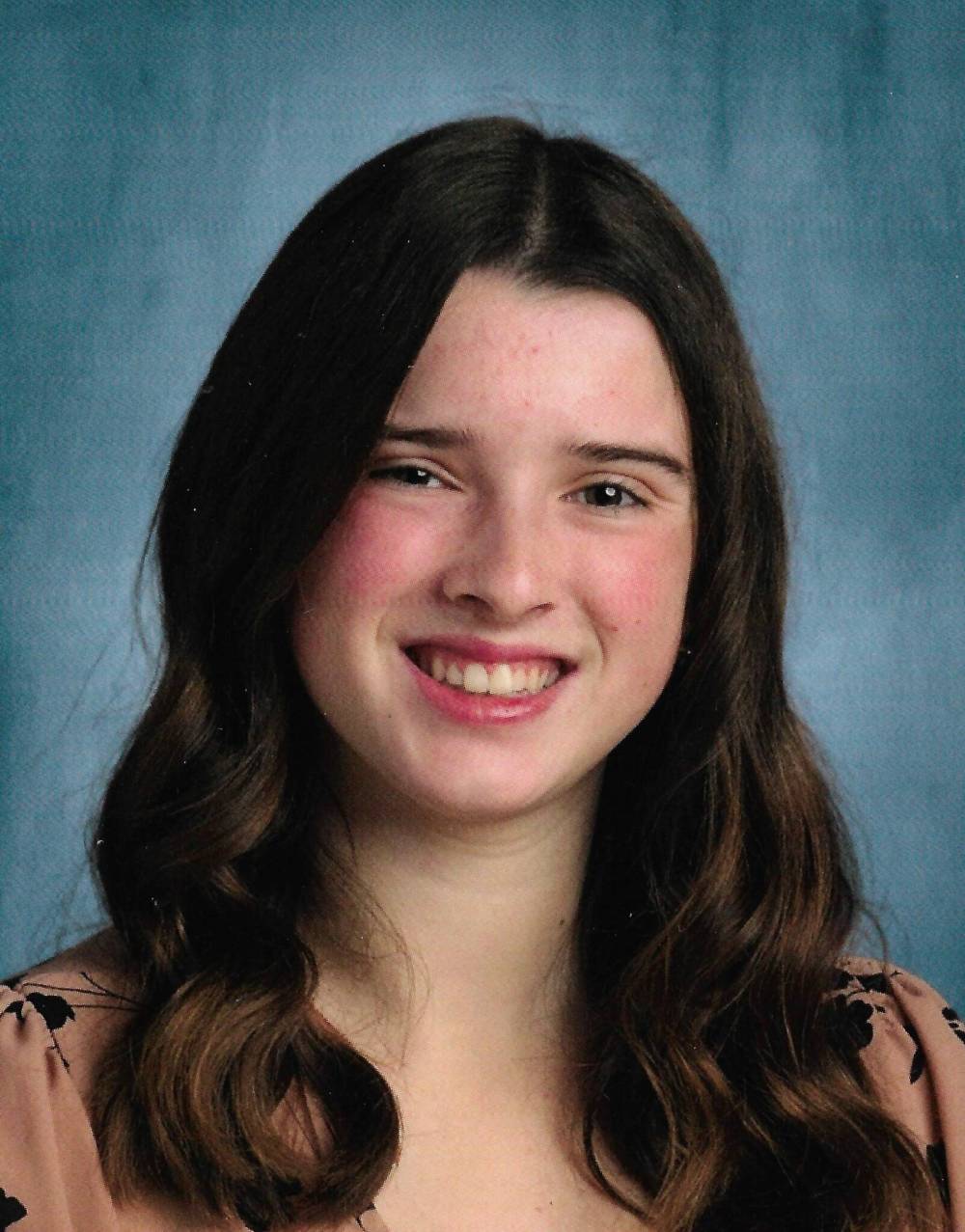
Supplied photo
Paige Fontaine, a Grade 12 student at Collège Jeanne-Sauvé, won a $1,500 scholarship in French for the Future’s national essay competition, in the French as a second language category.
Hélène Marcoux, a Grade 12 student at Centre scolaire Léo-Rémillard, won a $1,500 scholarship in the French as a first language category for her essay on why ballet should be in the Olympics.
“I kept seeing, as a child, there were so many disciplines in the Olympics. I was like, ‘Wow, dancers are athletes, too,’” explained Marcoux, a lifelong ballet dancer. “Break dancing was added, and I was like, ‘We should discuss this.’”
Marcoux entered the contest after seeing a post about it on social media.
“I really just wanted to see what would happen,” she said. “Now I feel like, maybe writing is a talent I might have too that I didn’t know I had. I found out I was pretty good at coming up with arguments and explaining myself.”
The scholarship will help with her tuition next year, as Marcoux plans to take University 1 courses at Université de Saint-Boniface.
Meanwhile, Paige Fontaine, a Grade 12 student at Collège Jeanne-Sauvé, won a $1,500 scholarship in the French as a second language category. Fontaine heard about the opportunity while researching scholarships.
“Since I am a French immersion student … considering university in French, I decided that this scholarship would be a perfect opportunity to put my French skills to the test,” said Fontaine, who wrote her essay about woodcarving.

Hélène Marcoux, a Grade 12 student at Centre scolaire Léo-Rémillard, won a $1,500 scholarship in French for the Future’s national essay competition, in the French as a first language category.
“A few years ago, my grandpa taught me how to wood-carve and I thought that that would be the perfect subject of my essay since, not only is it something that I enjoy doing, it is also very unique,” Fontaine said. “Woodcarving isn’t a skill for everyone, therefore it makes the talent more interesting — the many benefits that woodcarving has, and how the final piece itself is something that you don’t want to miss.”
The scholarship not only provided Fontaine with funds for post-secondary education, but also a confidence boost.
“This (shows) that I can perform well in my second language … and has given me more confidence in my French abilities,” she said. “Due to this, I feel more confident that I want to pursue my studies in a French environment so that I can continue being fluent in both French and English.”
Sheldon Birnie Community Journalist
Sheldon Birnie is a reporter/photographer for the Free Press Community Review. The author of Missing Like Teeth: An Oral History of Winnipeg Underground Rock (1990-2001), his writing has appeared in journals and online platforms across Canada, the U.S. and the U.K. A husband and father of two young children, Sheldon enjoys playing guitar and rec hockey when he can find the time. Email him at [email protected] Call him at 204-697-7112
Read full biography
Advertisement Advertise With Us
- Share full article

A French-Malian Singer Is Caught in an Olympic Storm
Aya Nakamura’s music is one of France’s top cultural exports. But reports that she might perform at the Paris Games have prompted fierce debates over identity and language.
Aya Nakamura is France’s most popular singer at home and abroad, with 25 top 10 singles in France and over 20 million followers on social media. Credit... Charlotte Hadden for The New York Times
Supported by

By Roger Cohen and Aurelien Breeden
Reporting from Paris
- March 26, 2024
In four months, France will host the Paris Olympics, but which France will show up? Torn between tradition and modernity, the country is in the midst of an identity crisis.
The possible choice for the opening ceremony of Aya Nakamura , a superstar French-Malian singer whose slang-spiced lyrics stand at some distance from academic French, has ignited a furor tinged with issues of race and linguistic propriety and the politics of immigration. Right-wing critics say Ms. Nakamura’s music does not represent France, and the prospect of her performing has led to a barrage of racist insults online against her. The Paris prosecutor’s office has opened an investigation.
The outcry has compounded a fight over an official poster unveiled this month: a pastel rendering of the city’s landmarks thronging with people in a busy style reminiscent of the “Where’s Waldo?” children’s books.
Right-wing critics have attacked the image as a deliberate dilution of the French nation and its history in a sea of sugary, irreproachable blandness most evident in the removal of the cross atop the golden dome of the Invalides, the former military hospital where Napoleon is buried. An opinion essay in the right-wing Journal du Dimanche said “the malaise of a nation in the throes of deconstruction” was in full view.
The rapid immersion of the Olympics in France’s culture wars has its roots in a meeting on Feb. 19 at the Élysée Palace between President Emmanuel Macron and Ms. Nakamura, 28. Mr. Macron, doubling as the artistic director of the Olympics, asked if she would perform.

Ms. Nakamura is by some distance France’s most popular singer at home and abroad, with 25 top 10 singles in France and over 20 million followers on social media. Born Aya Danioko in Bamako, Mali, she took her stage name from a character in “Heroes,” a science fiction series on NBC. Raised in a suburb of Paris, she mixes French lyrics with Arabic, English and West African languages like Bambara, the Malian language of her parents, in songs that interweave R&B, zouk and the rhythms of Afropop.
“This isn’t a beautiful symbol, it’s a new provocation by Emmanuel Macron, who must wake up every morning wondering how he can humiliate the French people,” Marine Le Pen, a leader of the far-right National Rally party, told France Inter radio , alluding to the possible choice of Ms. Nakamura. She insisted that Ms. Nakamura sang “who knows what” language — certainly not French — and was unfit to represent the country.
Ms. Nakamura, who declined a request for an interview, has not publicly addressed the furor beyond a few social media posts. On X, she responded to attacks by saying “you can be racist, but not deaf.” Naturalized in 2021, the singer has dual French and Malian citizenship. But in a country often ill at ease with its changing population — more diverse, less white, more questioning of the French model of identity-effacing assimilation in supposedly undifferentiated citizenship — she stands on a fault line.
“There is an identity panic,” said Rokhaya Diallo, a French author, filmmaker and activist. “I think France does not want to see itself the way it really is.” Citing the soccer star Kylian Mbappé and Ms. Nakamura, Ms. Diallo suggested that “a white France feels threatened in a way it did not 30 years ago.”
Ms. Nakamura is held to an unfair standard because of her background, Ms. Diallo added. “Her linguistic creativity is going to be seen as incompetence instead of artistic talent,” she said, because focusing solely on the artist’s lyrics ignored the inventive musicality of her songs.
The eldest of five siblings, Ms. Nakamura, who is a single mother of two children, was born into a family of griots, or traditional West African musicians and storytellers. “Everyone sings in my family,” she told Le Monde in 2017 . “But I’m the only one who dared to sing ‘for real.’”
Her music has little overt political messaging. She told The New York Times in 2019, “I’m happy if my songs speak for themselves.” But she has also said she recognizes her place as a feminist role model. Her lyrics are often an ode to emancipated women who are firmly in control of their lives and unabashed about their sexuality.
“At the start of my career, I was rather skeptical of this idea of a model,” Ms. Nakamura told CB News , a marketing and public relations trade publication, in December. “But it’s a reality: I have influence. If, through my work and my undertakings, I enable certain women to assert themselves, then that’s something to be proud of.”
The furor over her possible performance reflects a fractured France. Some see a reactionary nation intent on ignoring how large-scale immigration, particularly from North Africa, has enriched the country hosting the 33rd Summer Olympics of modern times. Celebrities, left-wing politicians and government officials support the idea of Ms. Nakamura taking a prominent role in the ceremony.
Others, especially on the right, see a multicultural France intent on concealing its Christian roots, even the nation itself, especially with the erasure of the cross from the Invalides dome and the absence of a single French flag in the official poster. Mild pink, purple and green are favored over the bold blue, white and red of France.
“Every time the world is watching us, we give the impression we don’t embrace who we are,” Marion Maréchal, Ms. Le Pen’s niece and a leader of the extreme-right Reconquête party, told French television last week.
Then there is the question of language in this land of the Académie Française , which was founded in 1634 to promote and protect the French language. It takes upon itself the task of shielding the country from “brainless Globish,” as one of the 40 members once put it, and it does so with ardor, if with diminishing success as France succumbs to a world of “les startuppers.”
“There is a sort of religion of language in France,” said Julien Barret, a linguist and writer who has written an online glossary of the language prevalent in the banlieues where Ms. Nakamura grew up. “French identity is conflated with the French language” he added, in what amounts to “a cult of purity.”
That so-called purity has long since ceased to exist. France’s former African colonies increasingly infuse the language with their own expressions. Singers and rappers, often raised in immigrant families, have coined new terms. “You can’t write a song like you write a school assignment,” Mr. Barret said.
Ms. Nakamura’s dance-floor hits use an eclectic mix of French argot like verlan , which reverses the order of syllables; West African dialect like Nouchi in the Ivory Coast; and innovative turns of phrase that are sometimes nonsensical but quickly catch on.
In “ Djadja ,” her breakout song from 2018 that has become an anthem of female empowerment, she calls out a man who lies about sleeping with her by singing “I’m not your catin, ” using a centuries-old French term for prostitute. It has been streamed about one billion times.
Another widely popular song is “ Pookie ” — a diminutive for poucave, slang that originates from Romani for a traitor or a rat.
During the meeting with Mr. Macron, first revealed by the magazine L’Express , the president asked Ms. Nakamura which French singer she liked. Her response was Édith Piaf, the legendary artist who died in 1963 and famously regretted nothing.
So, Mr. Macron suggested to Ms. Nakamura — in an account that the presidency has not disputed — why not sing Piaf to open the Olympics?
The idea is still under review.
For some, Ms. Nakamura channeling Piaf might be the perfect tribute to “La Vie en Rose,” Piaf’s immortal anthem of Parisian romantic love. Bruno Le Maire, the economy minister — and occasional author of erotic novels — said it would show “panache” and “audacity.” Supporters have noted that the two singers grew up in poverty and came from immigrant backgrounds.
But a recent poll found that 63 percent of French people did not approve of Mr. Macron’s idea, even though about half the respondents said they knew of Ms. Nakamura only by name.
Ms. Nakamura has encountered criticism of her music before in France, where expectations of assimilation are high. Some on the right complain she has become French but shown more interest in her African roots or her American role models.
She responded to her critics on French television in 2019 , saying of her music, “In the end, it speaks to everyone.”
“You don’t understand,” she added. “But you sing.”
The Olympics furor appears unlikely to subside soon. As a commentator on France Inter radio put it: “France has no oil, but we do have debates. In fact, we almost deserve a gold medal for that.”
Roger Cohen is the Paris Bureau chief for The Times, covering France and beyond. He has reported on wars in Lebanon, Bosnia and Ukraine, and between Israel and Gaza, in more than four decades as a journalist. At The Times, he has been a correspondent, foreign editor and columnist. More about Roger Cohen
Aurelien Breeden is a reporter for The Times in Paris, covering news from France. More about Aurelien Breeden
Advertisement
- International edition
- Australia edition
- Europe edition
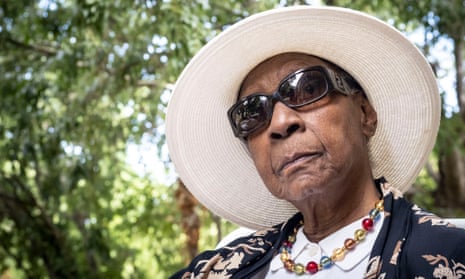
Maryse Condé, Guadeloupean 'grand storyteller' dies aged 90
Author of novels drawing on African and Caribbean history enjoyed international acclaim, including the New Academy prize, which stood in for the Nobel in 2018
Maryse Condé, the Guadeloupean author of more than 20 novels, activist, academic and sole winner of the New Academy prize in literature , has died aged 90.
Condé, whose books include Segu and Hérémakhonon was regarded as a giant of the West Indies, writing frankly – as both a novelist and essayist – of colonialism, sexuality and the black diaspora, and introduced readers around the world to a wealth of African and Caribbean history.
Writing of the “unputdownable and unforgettable” epic Segu, Booker winner Bernardine Evaristo praised her as “an extraordinary storyteller”, while author Justin Torres wrote: “One is never on steady ground with Condé; she is not an ideologue, and hers is not the kind of liberal, safe, down-the-line morality that leaves the reader unimplicated.”
Alain Mabanckou, the award-winning Congolese writer and professor at the University of California in Los Angeles, wrote on X that Condé was the “Grande Dame of World Letters” and had bequeathed a body of work “driven by the quest for a humanism based on the ramifications of our identities and the fractures in history”.
Born Maryse Boucolon in Guadeloupe in 1934, the youngest of eight children, Condé described herself as a “spoilt child … oblivious to the outside world”. Her parents, she told the Guardian , never taught her about slavery and “were convinced France was the best place in the world”. She went to Paris at 16 for her education, but was expelled from school after two years: “When I came to study in France I discovered people’s prejudices. People believed I was inferior just because I was black. I had to prove to them I was gifted and to show to everybody that the colour of my skin didn’t matter – what matters is in your brain and in your heart.”
Studying at the Sorbonne, she began to learn about African history and slavery from fellow students and found sympathy with the Communist movement. She became pregnant after an affair with Haitian activist Jean Dominique. In 1958, she married the Guinean actor Mamadou Condé, a decision she later admitted was a means of regaining status as a black single mother. Within months their relationship was strained, and Condé moved to the Ivory Coast, spending the next decade in various African countries including Guinea, Senegal, Mali and Ghana, mixing with Che Guevera, Malcolm X, Julius Nyerere, Maya Angelou, future Ivory Coast president Laurent Gbagbo and Senegalese film-maker and author Ousmane Sembène.
Unable to speak local languages and presumed to hold francophile sympathies, Condé struggled to find her place in Africa. “I know now just how badly prepared I was to encounter Africa,” she would later say. “I had a very romantic vision, and I just wasn’t prepared, either politically or socially.” She remained outspoken until she was accused of subversive activity in Ghana and deported to London, where she worked as a BBC producer for two years. She eventually returned to France and earned her MA and PhD in comparative literature at Paris-Sorbonne University in 1975.
Her debut novel, Hérémakhonon, was published in 1976, with Condé saying she waited until she was nearly 40 because she “didn’t have confidence in myself and did not dare present my writing to the outside world”. The novel follows a Paris-educated Guadeloupean woman, who realises that her struggle to locate her identity is an internal journey, rather than a geographical one. Condé later recalled the Ghanaian author Ama Ata Aidoo telling her: “Africa … has codes that are easy to understand. It’s because you’re looking for something else … a land that is a foil that would allow you to be what you dream of being. And on that level, nobody can help you.” “I think she may have been right,” Condé later wrote.
In 1981, she divorced her husband after a long separation and, the following year she married one of her English-language translators, Richard Philcox.
She gained prominence as a contemporary Caribbean writer with her third novel, Segu, in 1984. The novel follows the life of Dousika Traore, a royal adviser in the titular African kingdom in the late-18th century, who must deal with encroaching challenges from religion, colonisation and the slave trade over six decades. It was a bestseller and praised as “the most significant novel about black Africa published in many a year” by the New York Times.

The next year she published a sequel, The Children of Segu, and was awarded a Fulbright scholarship to teach in the US. Over the coming decades, she would become a prolific writer of children’s books, plays and essays, including, in 1986, I, Tituba, Black Witch of Salem, based on the story of an American slave who was tried for witchcraft; Tree of Life in 1987; Crossing the Mangrove in 1989; Windward Heights, a Caribbean retelling of Wuthering Heights, in 1995; Desirada in 1997; The Belle Créole in 2001; The Story of the Cannibal Woman in 2003; and Victorie: My Mother’s Mother, in which she reconstructed the life of her illiterate grandmother, in 2006.
After teaching in New York, Los Angeles and Berkeley, Condé retired in 2005. She wrote two memoirs: 2001’s Tales from the Heart: True Stories from My Childhood, and in 2017, What is Africa to Me? She was awarded France’s Legion of Honour in 2004, and shortlisted for the Man Booker International prize, then a lifetime achievement award, in 2015. When she won the New Academy prize , the one-off award intended to replace the Nobel prize in literature when it was cancelled in 2018, she described herself as “very happy and proud”.
“But please allow me to share it with my family, my friends and above all the people of Guadeloupe, who will be thrilled and touched seeing me receive this prize,” she said. “We are such a small country, only mentioned when there are hurricanes or earthquakes and things like that. Now we are so happy to be recognised for something else.”
In her final years, she lived in the south of France with Philcox. Her novel The Wondrous and Tragic Life of Ivan and Ivana, translated into English in 2020, explores the dangers of binary thinking through the lives of two twins. Her eyesight became too bad for her to write unassisted, so she wrote her last books by dictating to a friend.
Her last novel, The Gospel According to the New World , published in 2021 and translated into English in March 2023, was shortlisted for the International Booker prize. The novel follows the journey of a baby rumoured to be the child of God.
Writing, she once wrote, “has has given me enormous joy. I would rather compare it to a compulsion, somewhat scary, whose cause I have never been able to unravel.”
- Maryse Condé
- Fiction in translation
Most viewed
In rare call, Russian defense minister warns French counterpart against sending troops to Ukraine
MOSCOW — Russia’s defense minister warned his French counterpart against deploying troops to Ukraine in a rare phone call Wednesday and noted that Moscow is ready to take part in talks to end the conflict.
Sergei Shoigu told French Defense Minister Sébastien Lecornu that if Paris follows up on its statements about the possibility of sending a French military contingent to Ukraine , “it will create problems for France itself,” according to a statement from the Russian Defense Ministry. It didn’t elaborate.
The conversation followed French President Emmanuel Macron’s comments in February, in which he said that the possibility of Western troops being sent to Ukraine could not be ruled out.
The call marked the first such contact between Russian and French defense ministers since October 2022.
Shoigu noted Moscow’s “readiness for dialogue on Ukraine,” emphasizing that a planned round of peace talks in Geneva would be “senseless” without Russia’s involvement. He added that possible future negotiations could be based on a draft document, which was discussed during Russia-Ukraine talks in Istanbul in March 2022.
Media reports have said that the draft negotiated in Istanbul weeks after Moscow sent troops into Ukraine envisaged that Ukraine will abandon its bid to join NATO and remain neutral. No final deal was reached and the talks collapsed quickly after.
The Russian Defense Ministry also said in its readout of Wednesday’s call that Lecornu offered condolences over the March 22 attack on a suburban Moscow concert hall that killed 145 in the deadliest assault on Russian soil in decades.
Russian President Vladimir Putin and his officials have sought to link Ukraine and the West to the attack despite Kyiv’s fierce denial, a claim of responsibility issued by an affiliate of Islamic State group and an advance warning that the U.S. had issued to Moscow about imminent attack.
The Russian Defense Ministry said that during the call Lecornu tried to persuade Shoigu that Ukraine and its Western allies had no relation to the concert hall raid, but Shoigu insisted that Moscow has “information about Ukrainian trace in organizing the terror attack.”
“The Kyiv regime does nothing without approval of its Western handlers,” the ministry quoted Shoigu as telling Lecornu.“We hope that the French special services weren’t involved in it.”


French translation of 'essay'

Browse Collins English collocations essay
Video: pronunciation of essay.

Examples of 'essay' in a sentence essay
Trends of essay.
View usage over: Since Exist Last 10 years Last 50 years Last 100 years Last 300 years
Browse alphabetically essay
- esprit de corps
- essay question
- All ENGLISH words that begin with 'E'
Related terms of essay
- literary essay
- my essay plan
- to publish an essay
Quick word challenge
Quiz Review
Score: 0 / 5

Wordle Helper

Scrabble Tools


IMAGES
VIDEO
COMMENTS
A commentaire de texte should be written in three parts: An introduction, where the text is presented. An argument, where the text is analyzed. A conclusion, where the analysis is summarized and elevated. Here is a handy in-depth guide to writing a successful commentaire de texte, written for French speakers.
French Translation of "ESSAY" | The official Collins English-French Dictionary online. Over 100,000 French translations of English words and phrases.
The first paragraph of your French essay should briefly introduce the topic and engage the reader. Here are some examples to help you write your essay: In recent years, the [topic] has become a hotly debated issue, with [brief outline of arguments]. The [subject] has been the subject of controversy for several decades, with [brief overview of ...
Types of Essay. 1. L'explication de texte. An explication de texte is a type of essay for which you complete a close reading. It is usually written about a poem or a short passage within a larger work. This close reading will elucidate different themes and stylistic devices within the text. When you are completing an explication de texte ...
essai m (plural: essais m) The student must write an essay about modern art. L'étudiant doit rédiger un essai sur l'art moderne. Students have to research before writing an essay. Les étudiants doivent faire des recherches avant de rédiger un essai.
Analyzing essays written by experienced writers can prove invaluable in grasping the authentic style required to compose a captivating essay. 3. Use Transition Words: Crafting a Smooth Flow of Ideas. In French essays, the use of transition words and phrases plays a pivotal role in connecting ideas seamlessly.
Do you need to write an essay in French? Whether you are a student, a traveler, or a language lover, you can benefit from learning some useful French essay phrases. In this article, you will discover 30 common expressions that will help you structure your arguments, introduce your ideas, and connect your thoughts in a clear and elegant way. Plus, you will also find some tips on how to improve ...
essay n. formal (attempt) essai nm. tentative nf. to make an essay at doing sth : essayer de faire [qch], tenter de faire [qch] loc v. Patrick's essay at painting the sunset was a complete disaster. L'essai de Patrick de peindre le soleil couchant était un désastre complet.
English French Contextual examples of "essay" in French . These sentences come from external sources and may not be accurate. bab.la is not responsible for their content. Osmani, S.R. (2003) "An essay on the human rights approach to development" (mimeo. more_vert. open_in_new Link to source ...
Learn how to write French essays using a traditional French essay structure. Introduction: You begin your essay by having an introduction, which is a context for argument. Thesis: In this section, you present and defend the statement of your thesis. You need to write everything that supports the topic of your essay.
Ex: You write an average of 15 words per line. If you are required to write a 300-word French essay, you should aim for: 300 words / 15 words per line = 20 lines total. 2. Draft the outline of your essay. An essay typically has an introduction, a body with 2 or 3 distinct parts and a conclusion. (See if that outline is relevant to the type of ...
Essay in French. The hallmark of the French Canadian essay is that it is both personal (or subjective) and creative. The essay stands apart from any writing that claims to offer an objective explanation of reality or explores a preordained, objective truth that is assumed to be valid for any time and place. The essayist is not at the service of ...
Many translated example sentences containing "essays" - French-English dictionary and search engine for French translations.
English Translation of "ESSAI" | The official Collins French-English Dictionary online. Over 100,000 English translations of French words and phrases.
This worksheet is geared towards advanced French Majors. It provides guidance on and tools for essay-writing in various genres. It is accompanied by "Know Your Audience: Undergraduate Writing and Speaking." For oral assignments, please consult "What
English to French translation results for 'essay' designed for tablets and mobile devices. Possible languages include English, Dutch, German, French, Spanish, and Swedish. Got it! We use cookies to personalise content and ads, to provide social media features and to analyse our traffic. We also share information about your use of our site with ...
Une problématique is a thesis statement to some people. In my experience, they are used in the same general educational contexts. Cependant (however), they do not mean exactly the same thing. The word for a thesis statement is une thèse principale or un énoncé de la thèse. It's a subtle difference, but la problématique is more about ...
Google's service, offered free of charge, instantly translates words, phrases, and web pages between English and over 100 other languages.
Definitions John Locke's 1690 An Essay Concerning Human Understanding. The word essay derives from the French infinitive essayer, "to try" or "to attempt".In English essay first meant "a trial" or "an attempt", and this is still an alternative meaning. The Frenchman Michel de Montaigne (1533-1592) was the first author to describe his work as essays; he used the term to characterize these as ...
A Simple Guide to Talking About School in French: Subjects, Rooms and More. School and education is one of the most common talking points for French learners.. Whether you're navigating a new French class, preparing for the speaking portion of a test like the GCSE or making friends with French-speaking students, it's important to know lots of school vocabulary.
DarlaGratch Native • 3 yr. ago. The only proper way is "voici mon essai de français". "de" because in that sentence, "français" is more referring to a course than to a language. "Voici mon devoir de maths" as well. "Voici mon essai en français" is a little bit weird but why not. It suggests that "français" is the language in which it's ...
So, let us begin and help you write your daily routine essay in French for everyday practice. 10 phrases sur la routine quotidienne en français. - 10 phrases about the daily routine in French. Je me réveille tous les matins à 6h00. - I wake up every morning at 6:00 a.m.
The Image Bank/Getty Images. Women are wisest, a viral essay in New York magazine's the Cut argues, to maximize their most valuable cultural assets— youth and beauty—and marry older men when ...
Hélène Marcoux, a Grade 12 student at Centre scolaire Léo-Rémillard, won a $1,500 scholarship in the French as a first language category for her essay on why ballet should be in the Olympics ...
An opinion essay in the right-wing Journal du Dimanche said "the malaise of a nation in the throes of deconstruction" was ... "French identity is conflated with the French language" he ...
Manchester United defender Raphaël Varane has told French sports newspaper L'Équipe in an interview that his body has been "damaged" after he believes he sustained a number of concussions ...
Russia's defence minister warned his French counterpart against deploying troops to Ukraine in a rare phone call on Wednesday, reports Associated Press (AP).Sergei Shoigu told French defence ...
Tue 2 Apr 2024 04.51 EDT. Maryse Condé, the Guadeloupean author of more than 20 novels, activist, academic and sole winner of the New Academy prize in literature, has died aged 90. Condé, whose ...
Russia's defense minister has warned his French counterpart against deploying troops to Ukraine in a rare phone call and noted that Moscow stands ready to take part in talks to end the fighting
English-French translation of "ESSAY" | The official Collins English-French Dictionary with over 100,000 French translations.